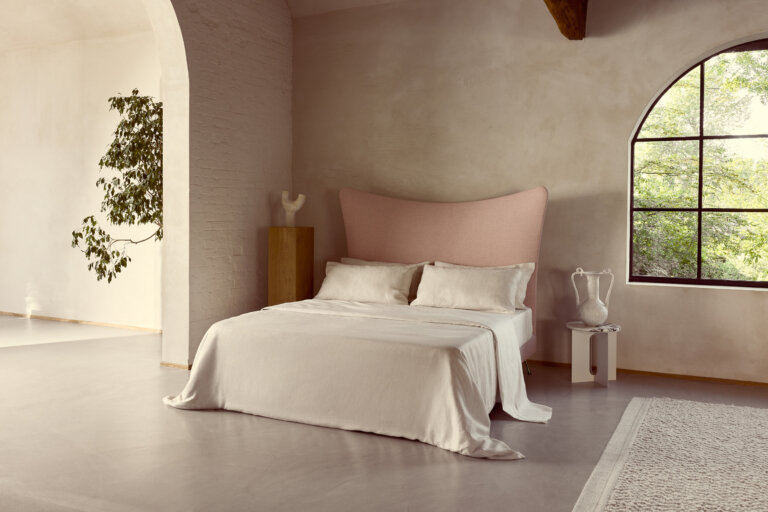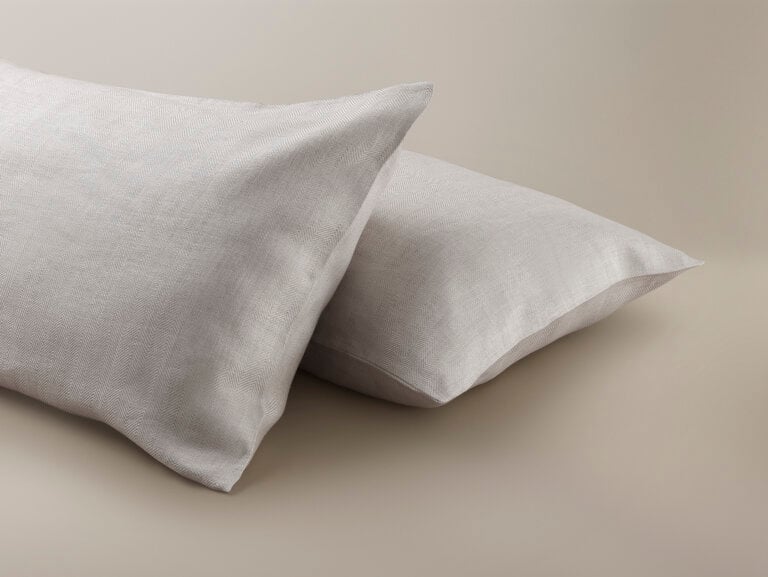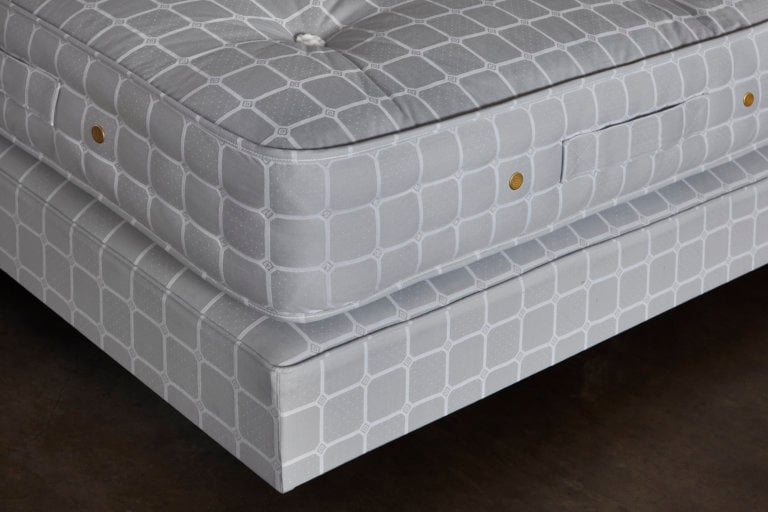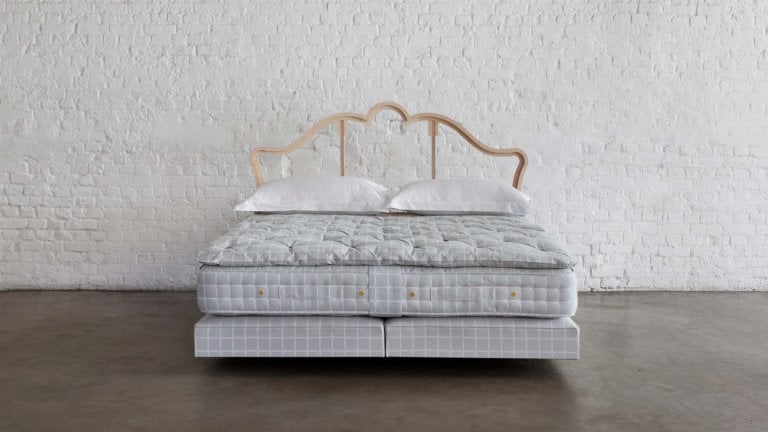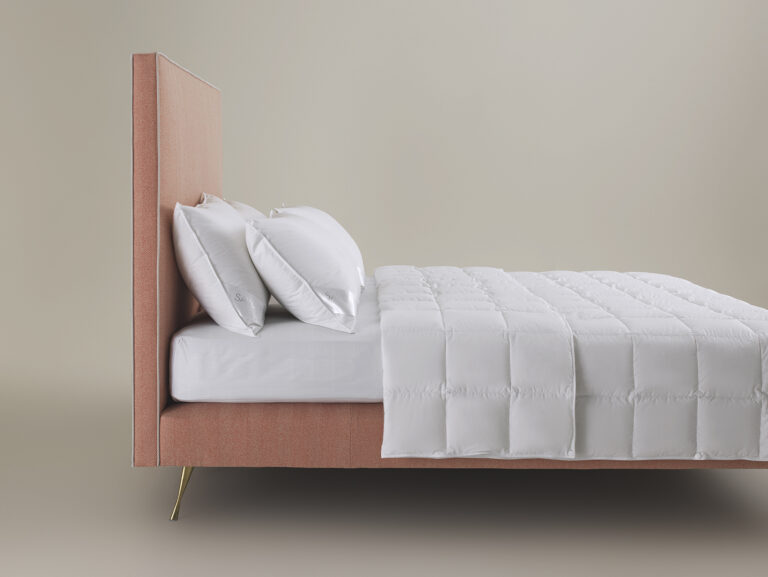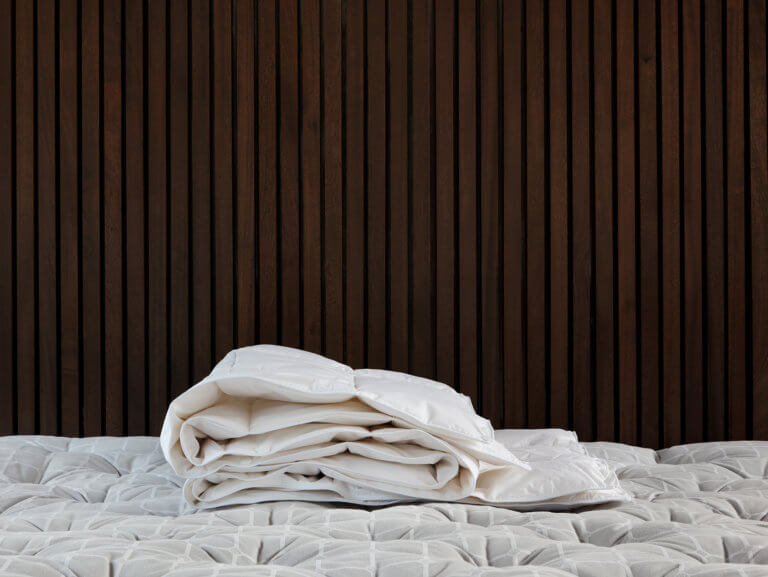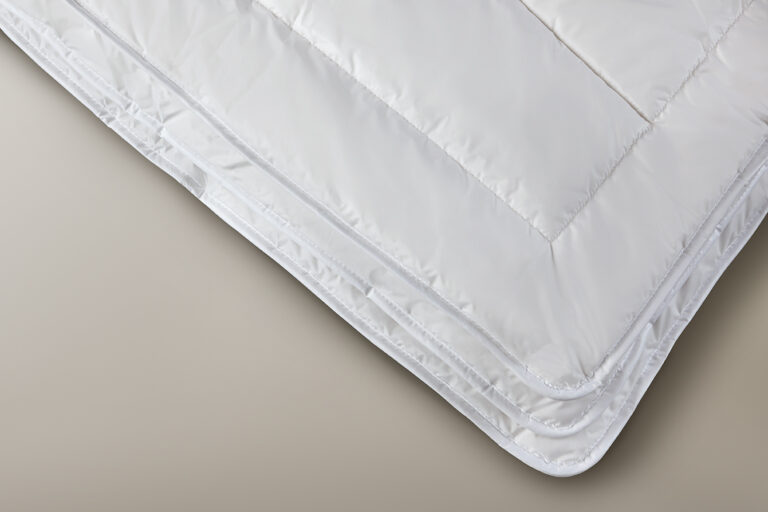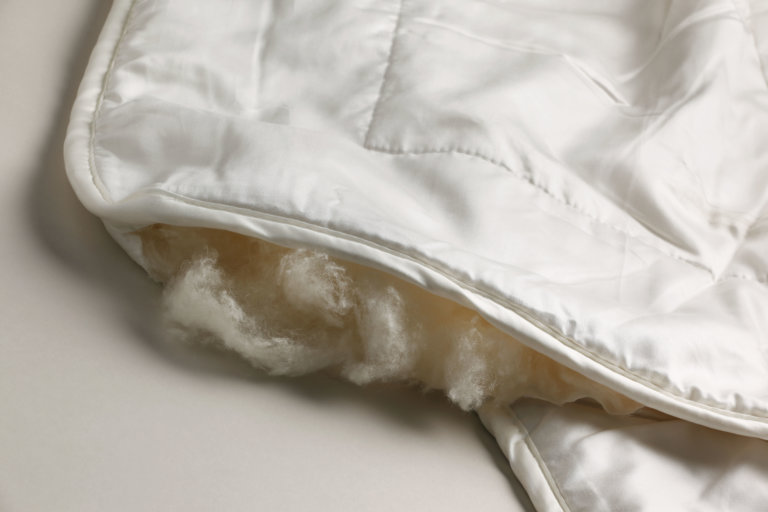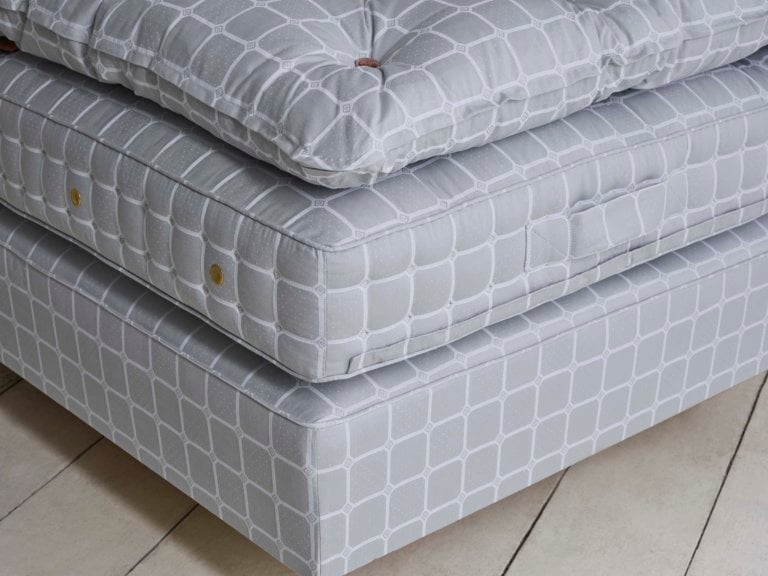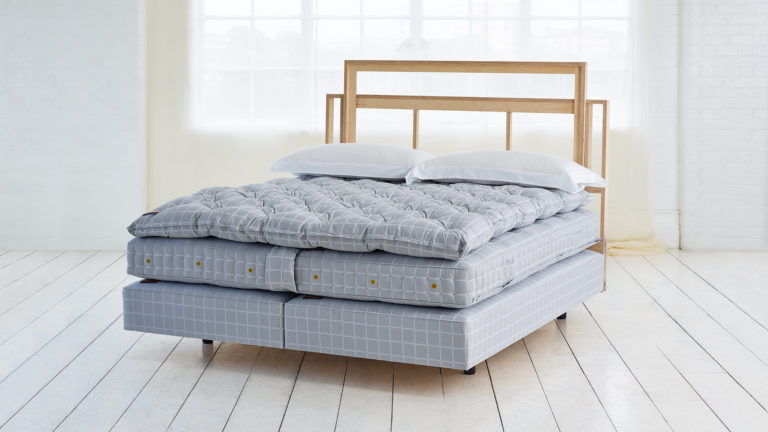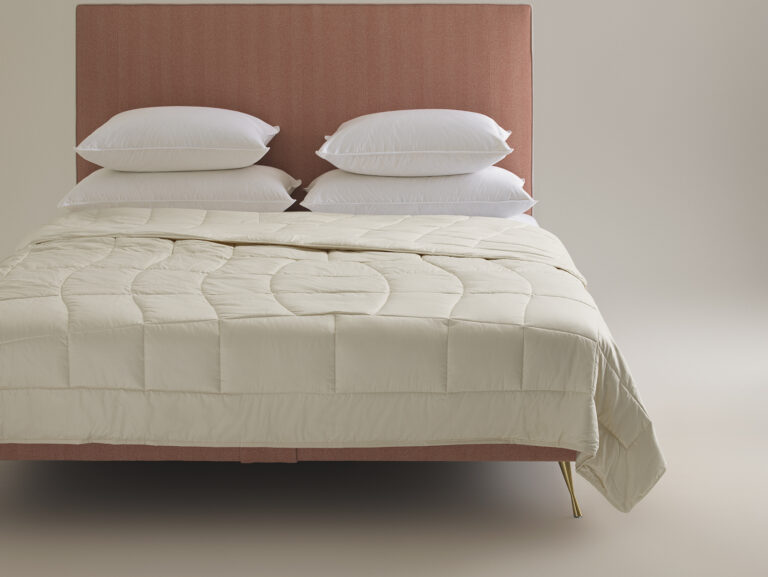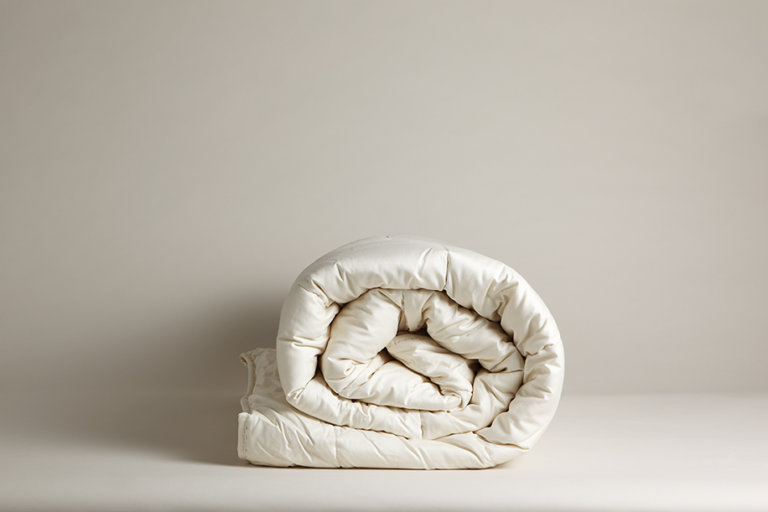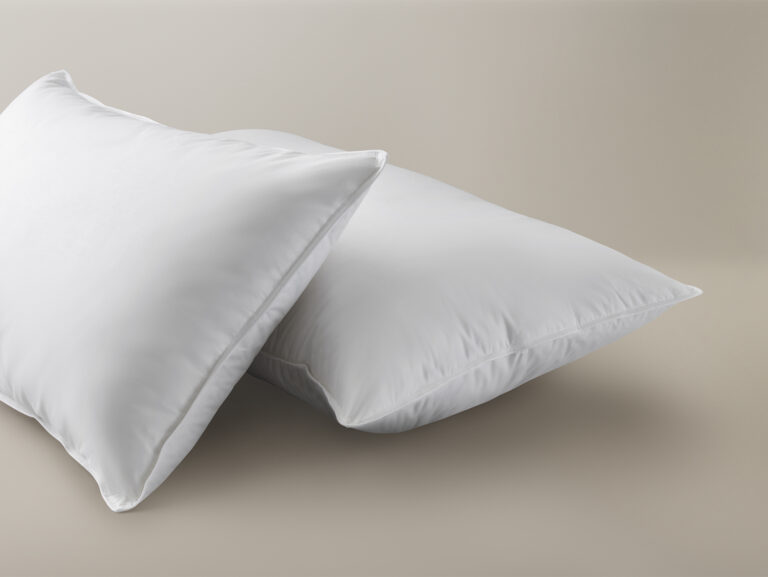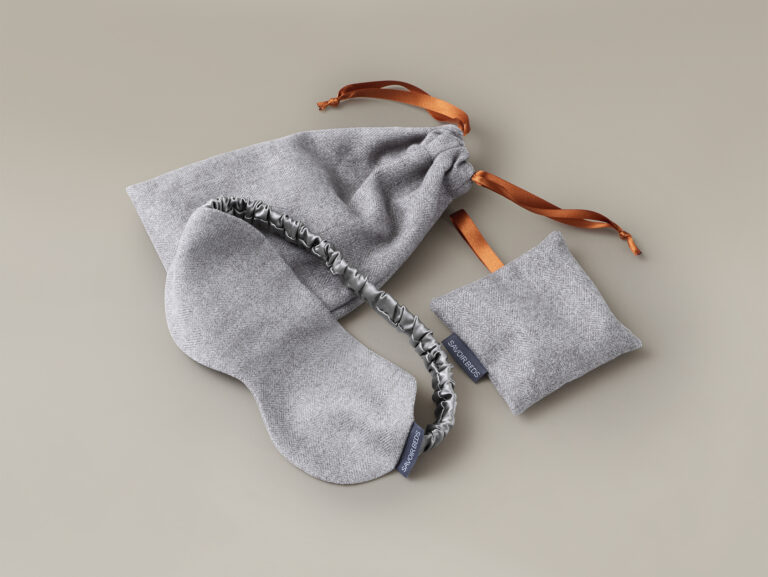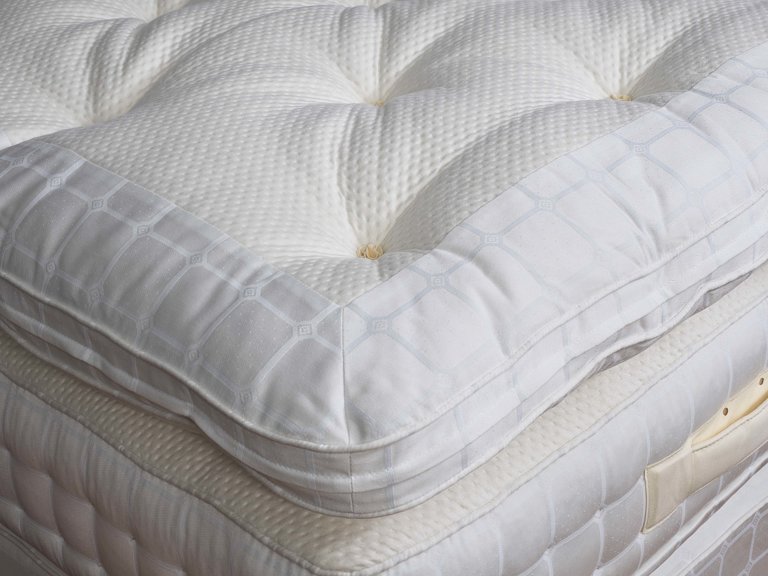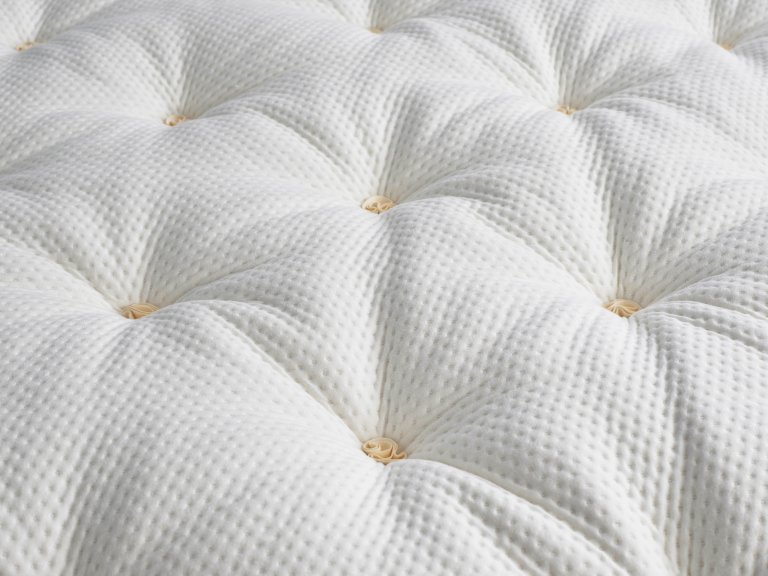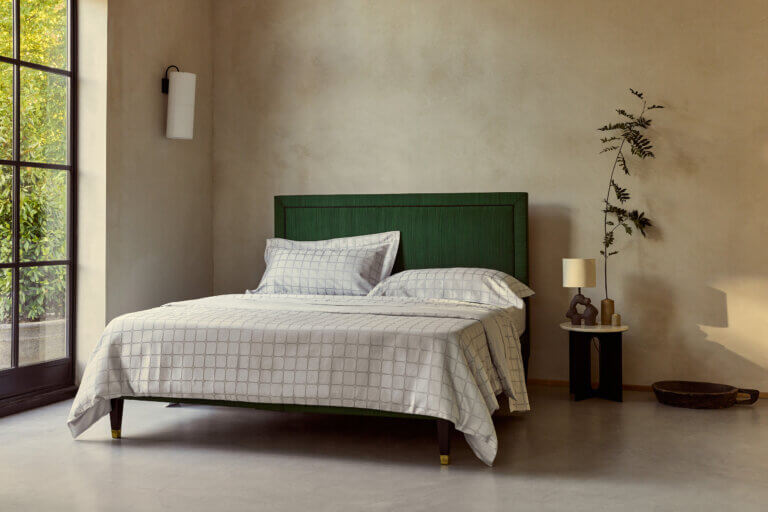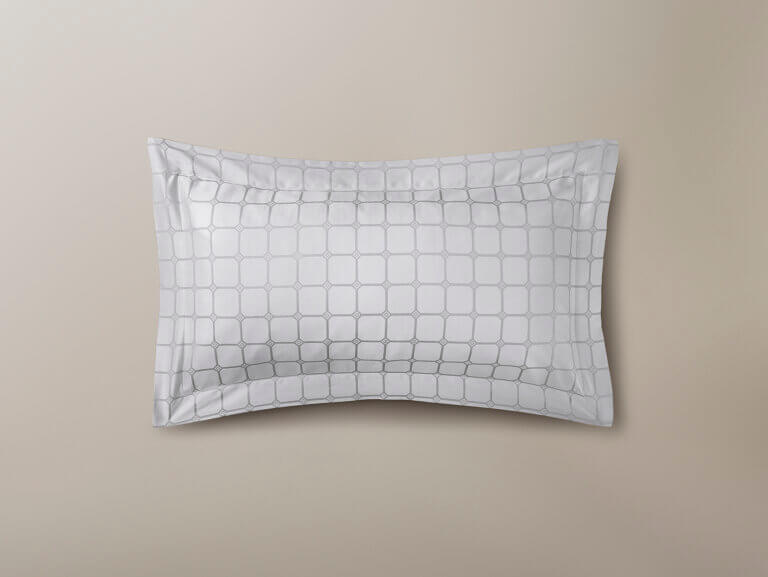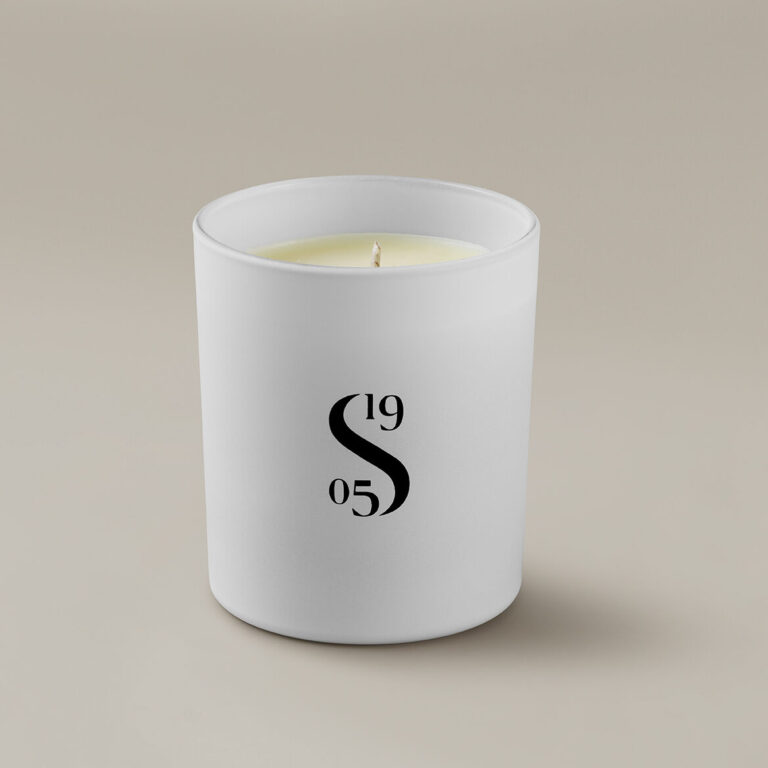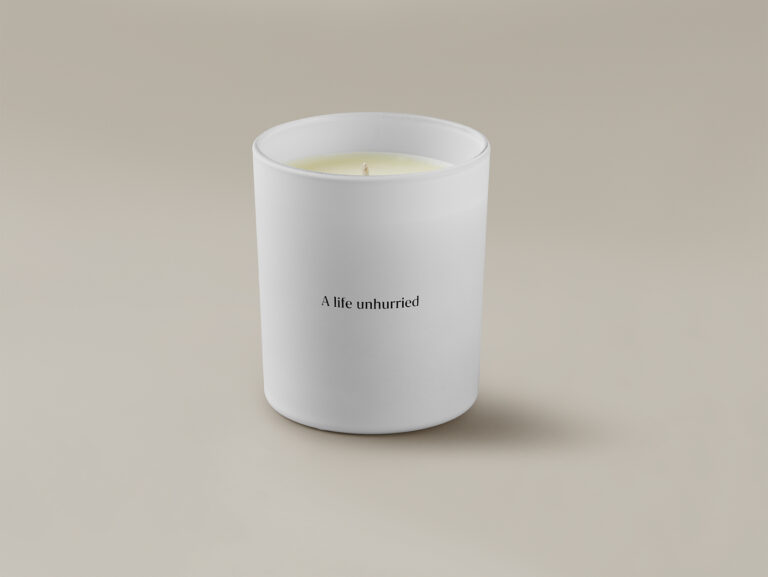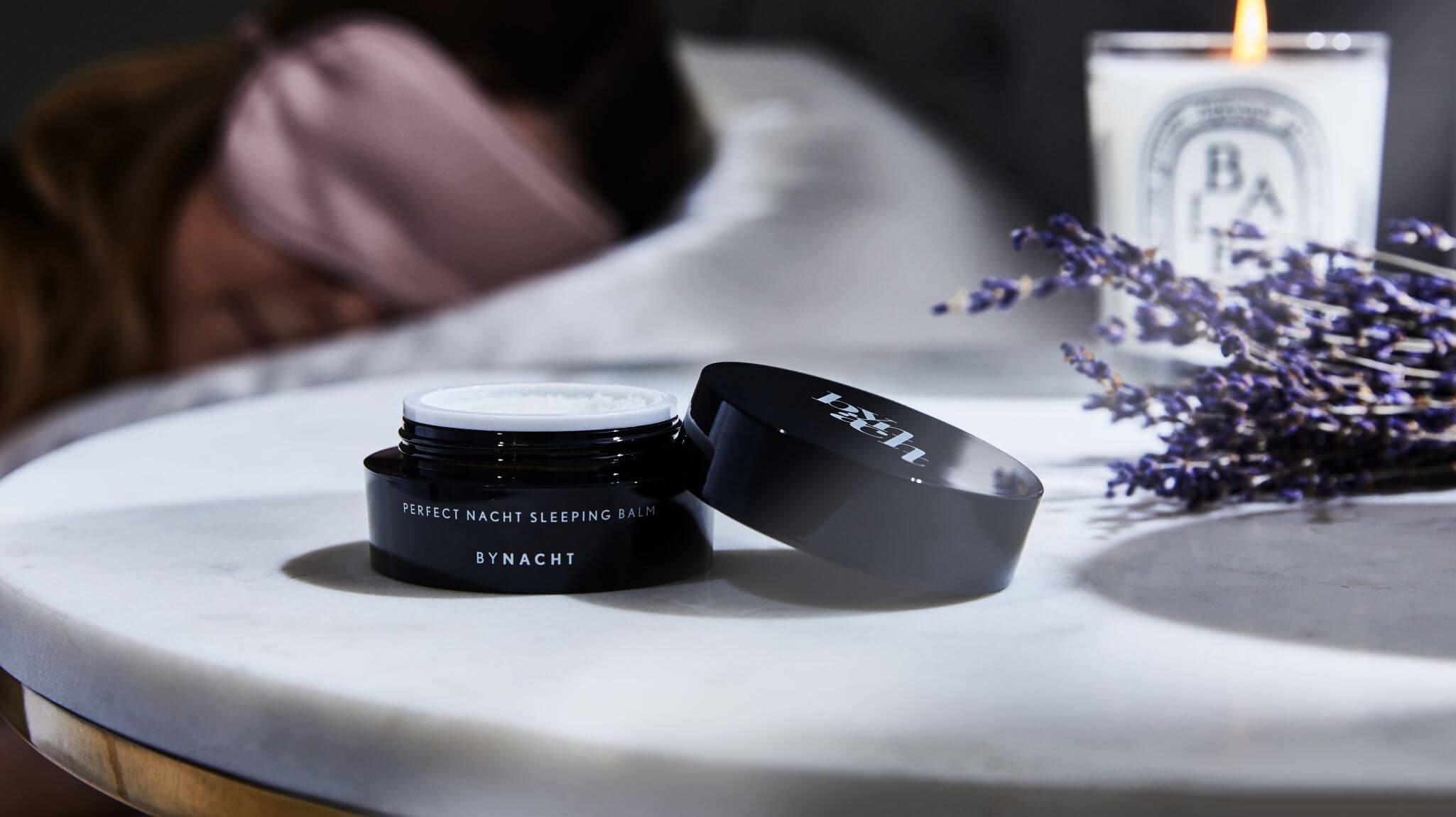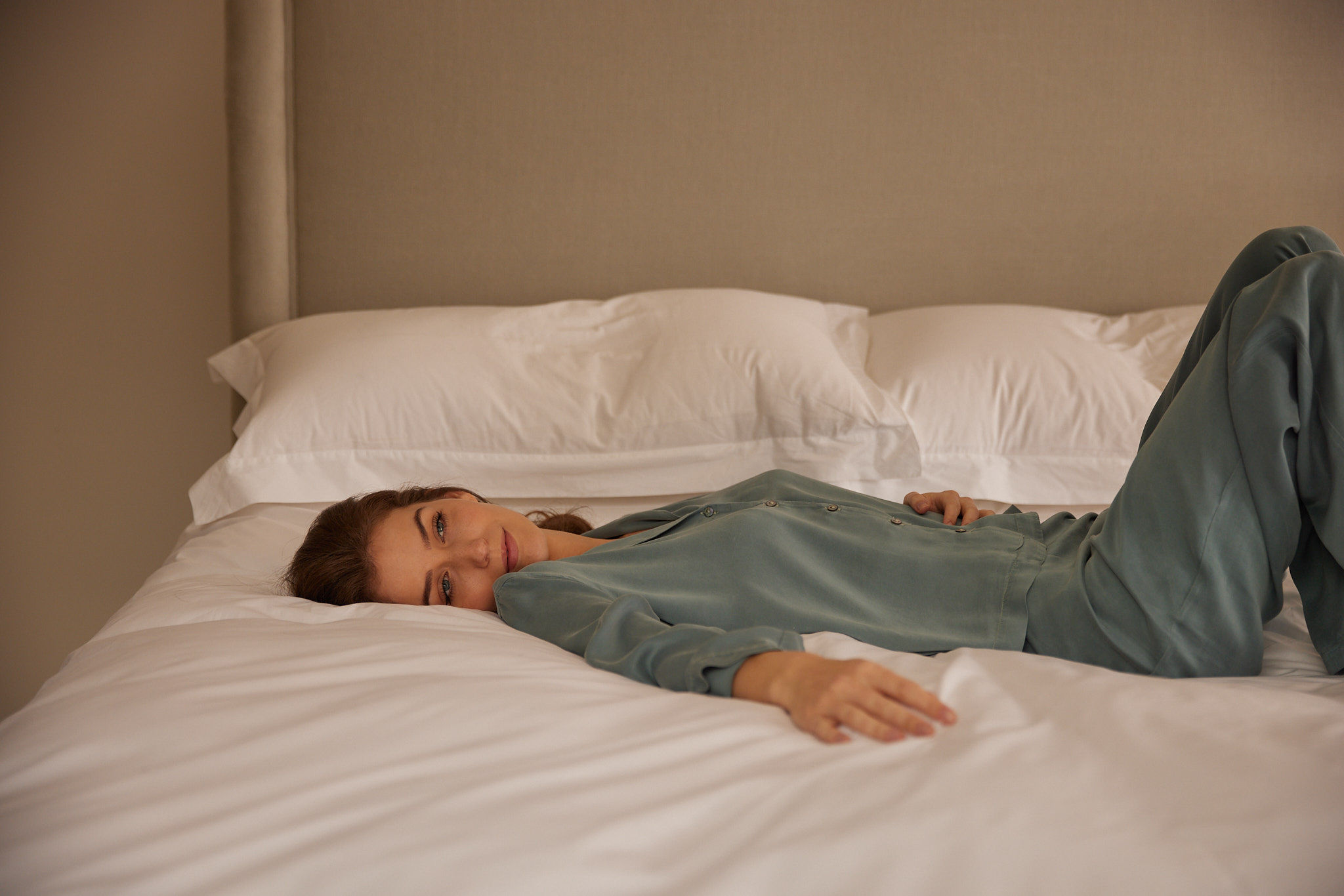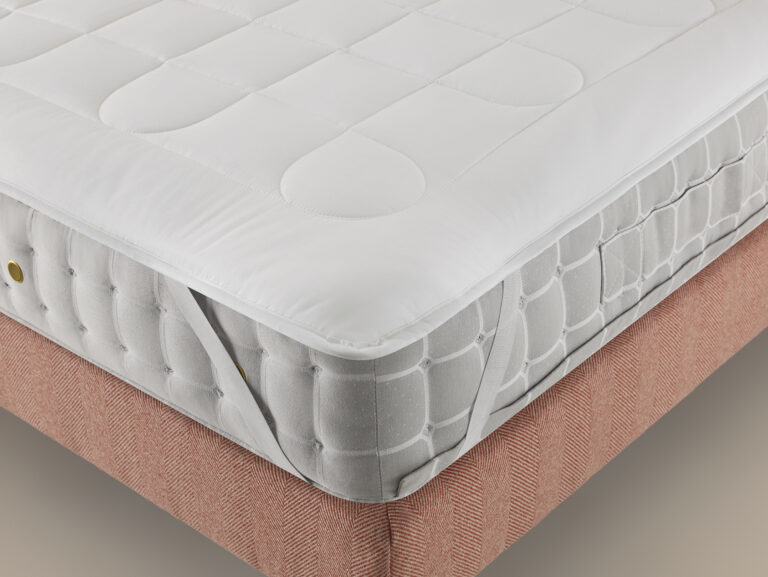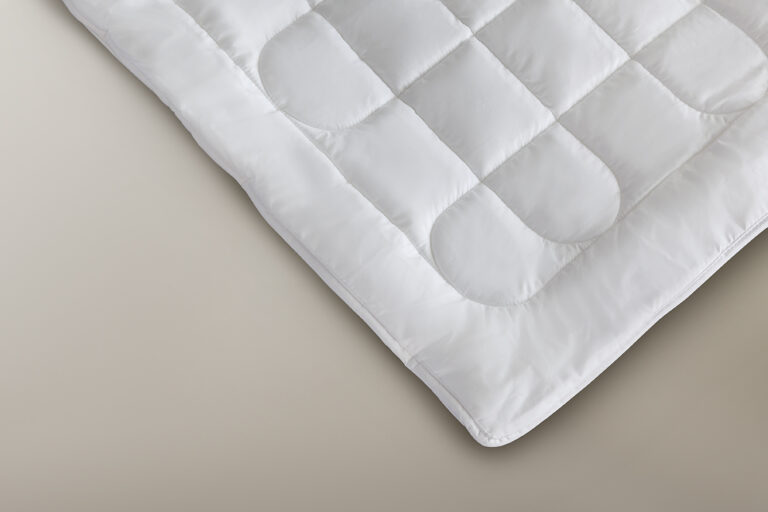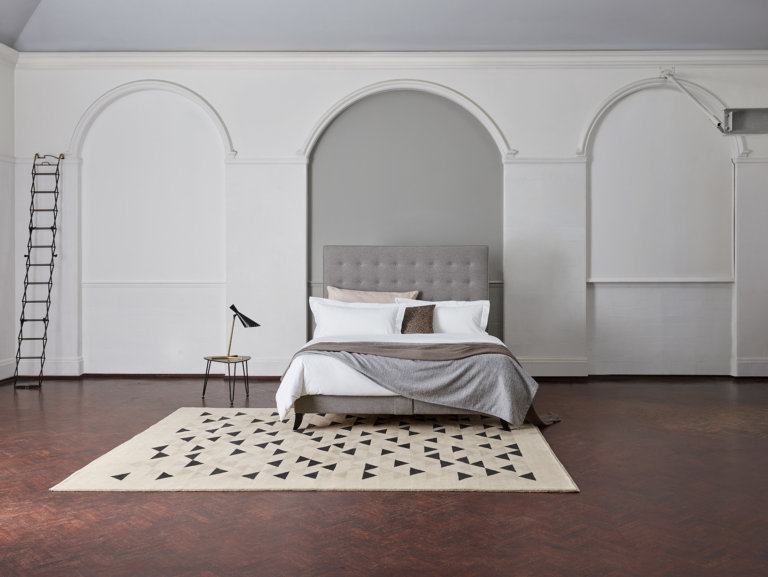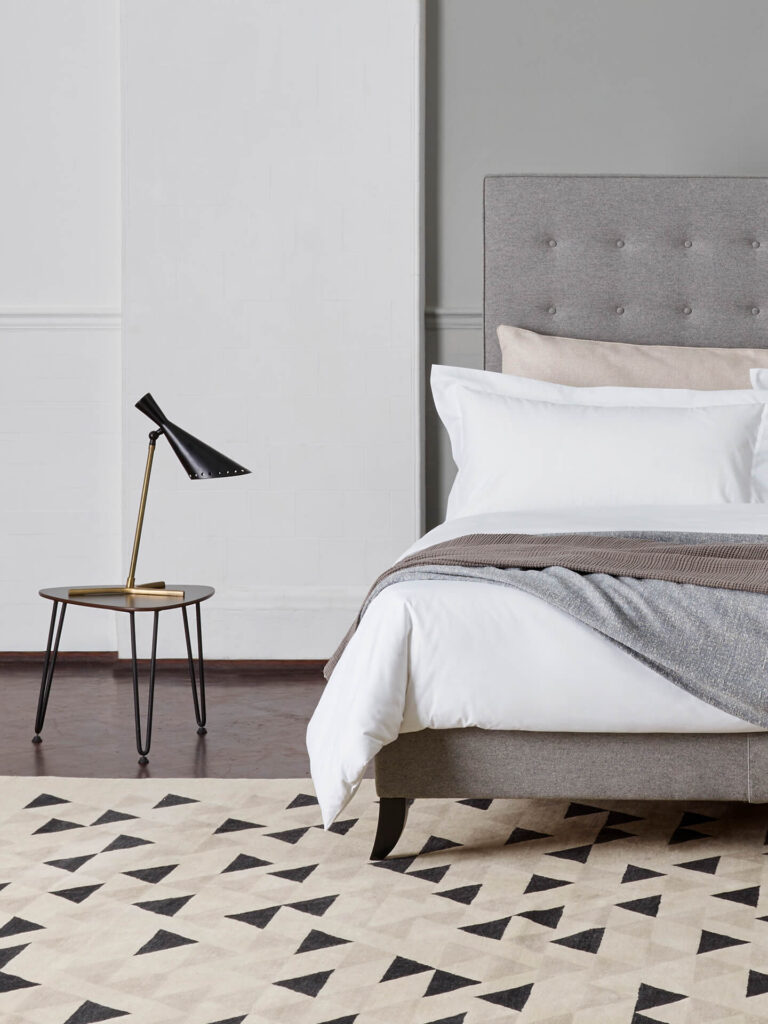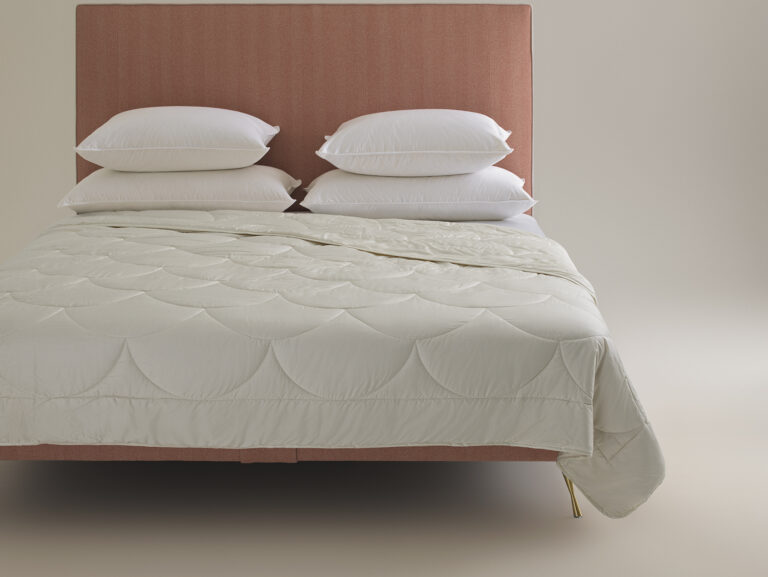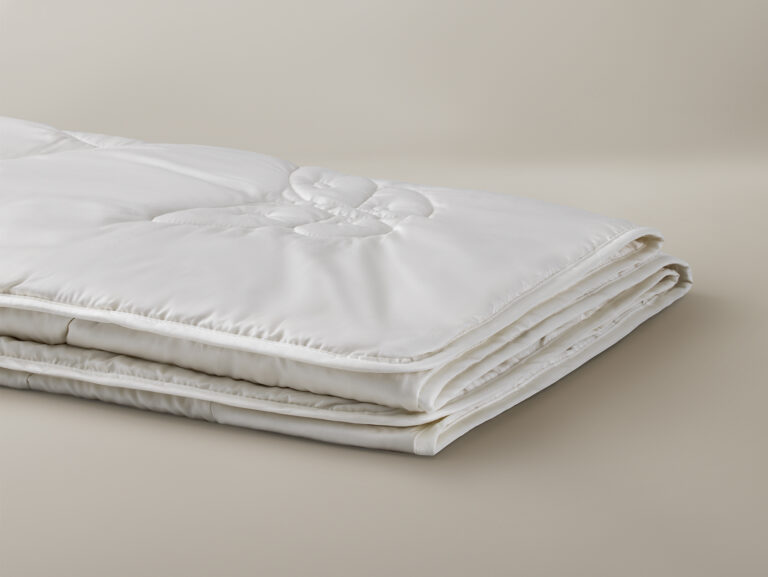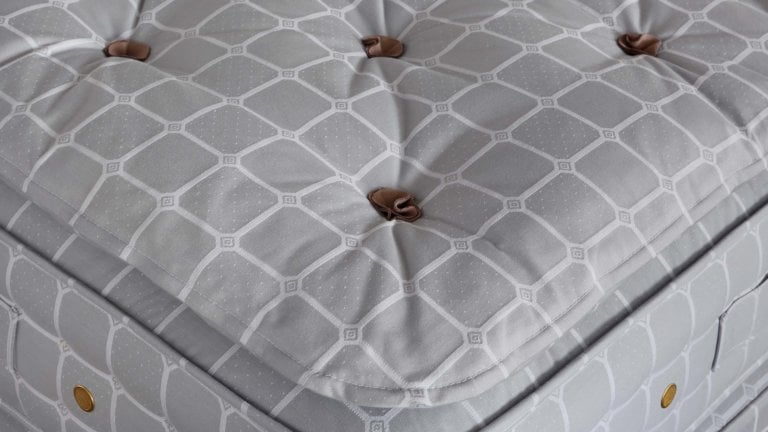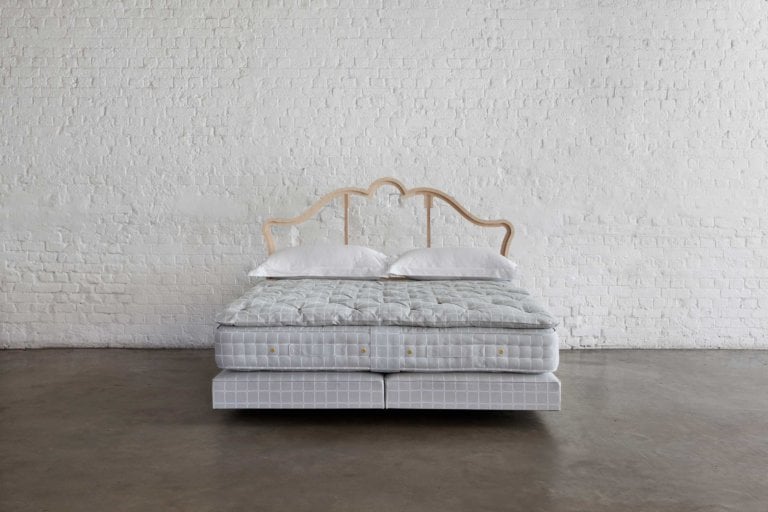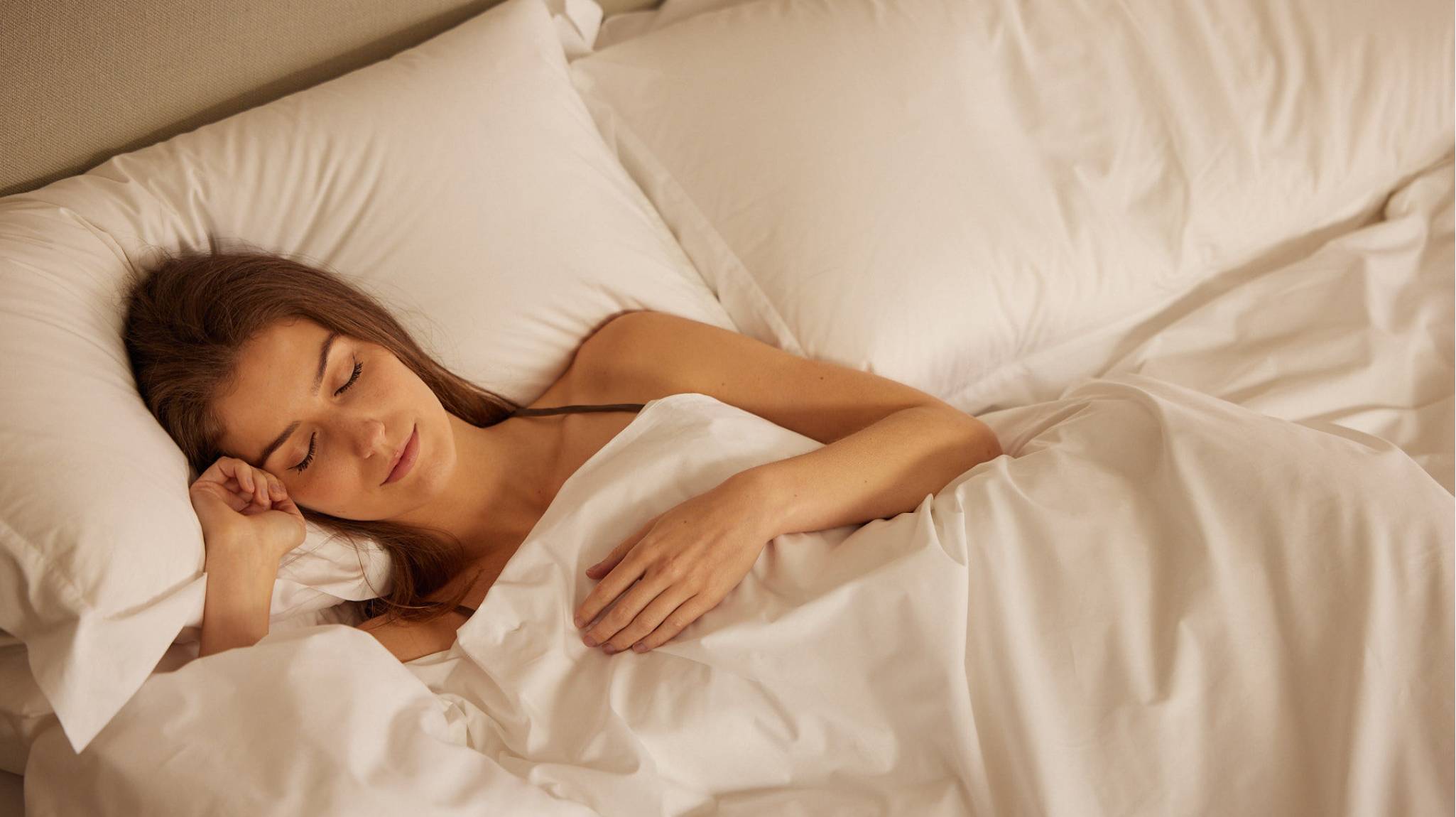The Science of Sleep with Harvard’s Dr Rebecca Robbins
Dr Rebecca Robbins reveals a new set of science-backed techniques to help transform your sleep, ensuring you wake up revived each, and every morning.

There is an art to sleep. For some, it comes naturally with ease and grace that can seem blissfully tantalising to those for whom it evades. But the luxury of a night of uninterrupted, restorative sleep, is possible for anyone. It just takes a bit of investment. How to craft the perfect night’s sleep is something that Savoir has taken seriously for more than a century. Our beds have supported the great and the good through momentous occasions in history. We’re dedicated to handcrafting layers of the finest fibres to deliver the best night’s sleep.
Sleep is the foundation of everything it means to be alive and well. Research consistently tells us the wide-ranging health benefits of a good night’s sleep, from better heart and brain health, younger skin, improved mood and more creative thinking. Good sleep can improve every aspect of our health and lives. “Sleep allows our body really to repair and regenerate from the inside out,” Sleep Scientist, Dr Rebecca Robbins, says.
But the pursuit of healthier sleep is “a long-term investment,” Dr Robbins argues. And one we need to take seriously. “We need to learn to re-prioritise sleep,” she says. “It has never been more needed during the present time, fraught with uncertainty and anxiety, we need to focus on our sleep to reap the vital role it plays in our mental and physical well-being.”
Sleep can virtually reverse the signs of ageing physically – both internally and externally.
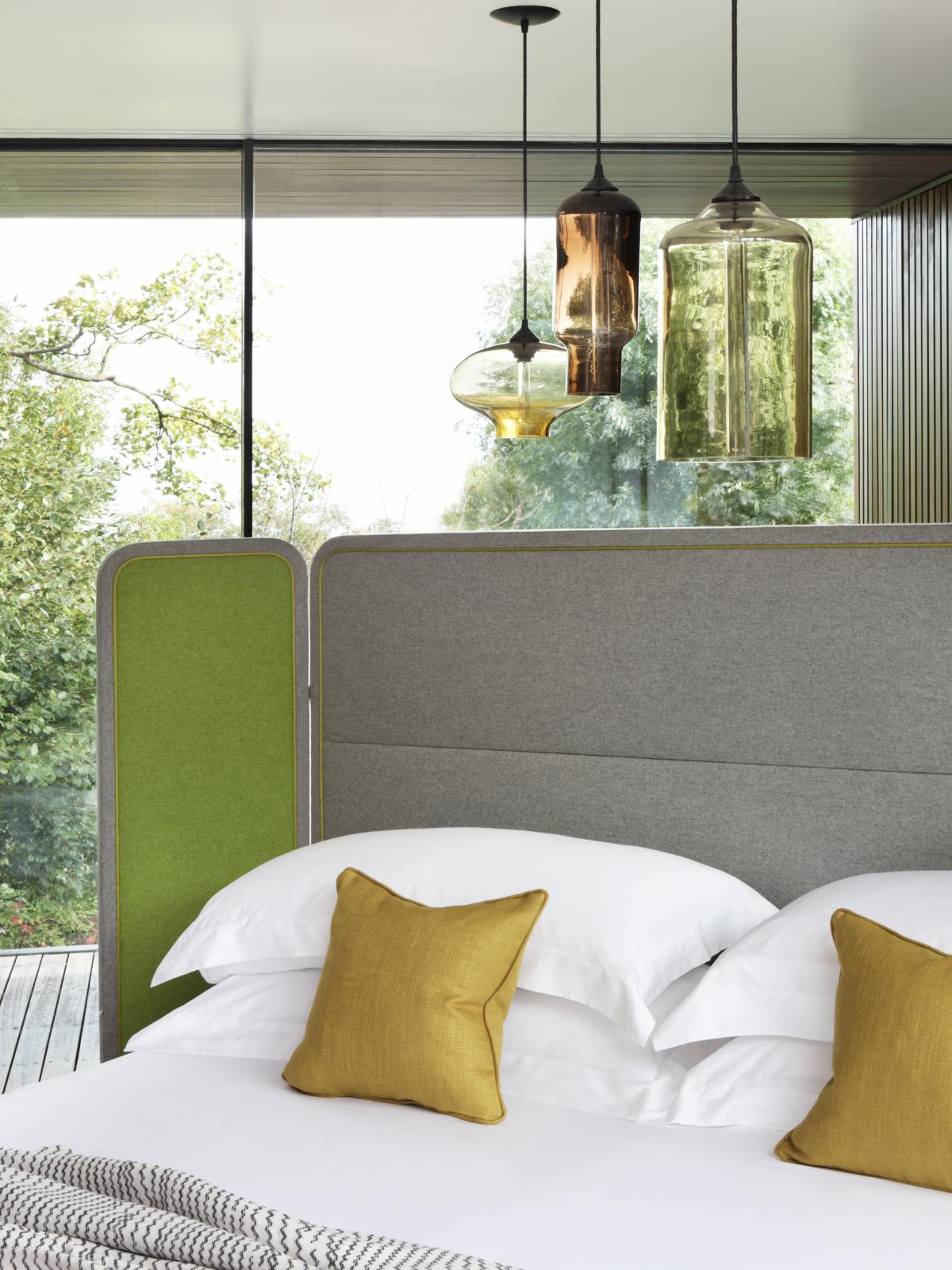
Over a third of adults report sleeping less than the recommended seven to nine hours per night, according to the Sleep Foundation. “There is an expectation that sleep should just come easily because it’s a natural process,” Dr Robbins says. “Then when it doesn’t, it can feel like something is wrong with you.”
Savoir, along with Dr Robbins, is on a mission to help regain the power of sleep. Bringing together Dr Robbins’ research and our expertise in crafting bespoke beds, we have looked deep into the science of sleep and the fundamentals of quality sleep to create a new set of behavioural interventions that can transform your sleep. Helping you to look, feel and perform better, for both tomorrow and in years to come. “Because restorative sleep – and the health benefits it brings – should be in reach for everyone. But restorative sleep takes motivation, focus, and time,” Dr Robbins says.
Together with Dr Robbins, we have distilled the most up-to-date scientific evidence to help you build your own, bespoke sleep plan with the aim of improving both the amount of time you sleep and the quality. “Small changes to your sleep routine can reap major rewards in terms of improved sleep and next day performance.”
The pursuit of healthier sleep is a long-term investment that will pay off for our bodies, skin, brain and minds.
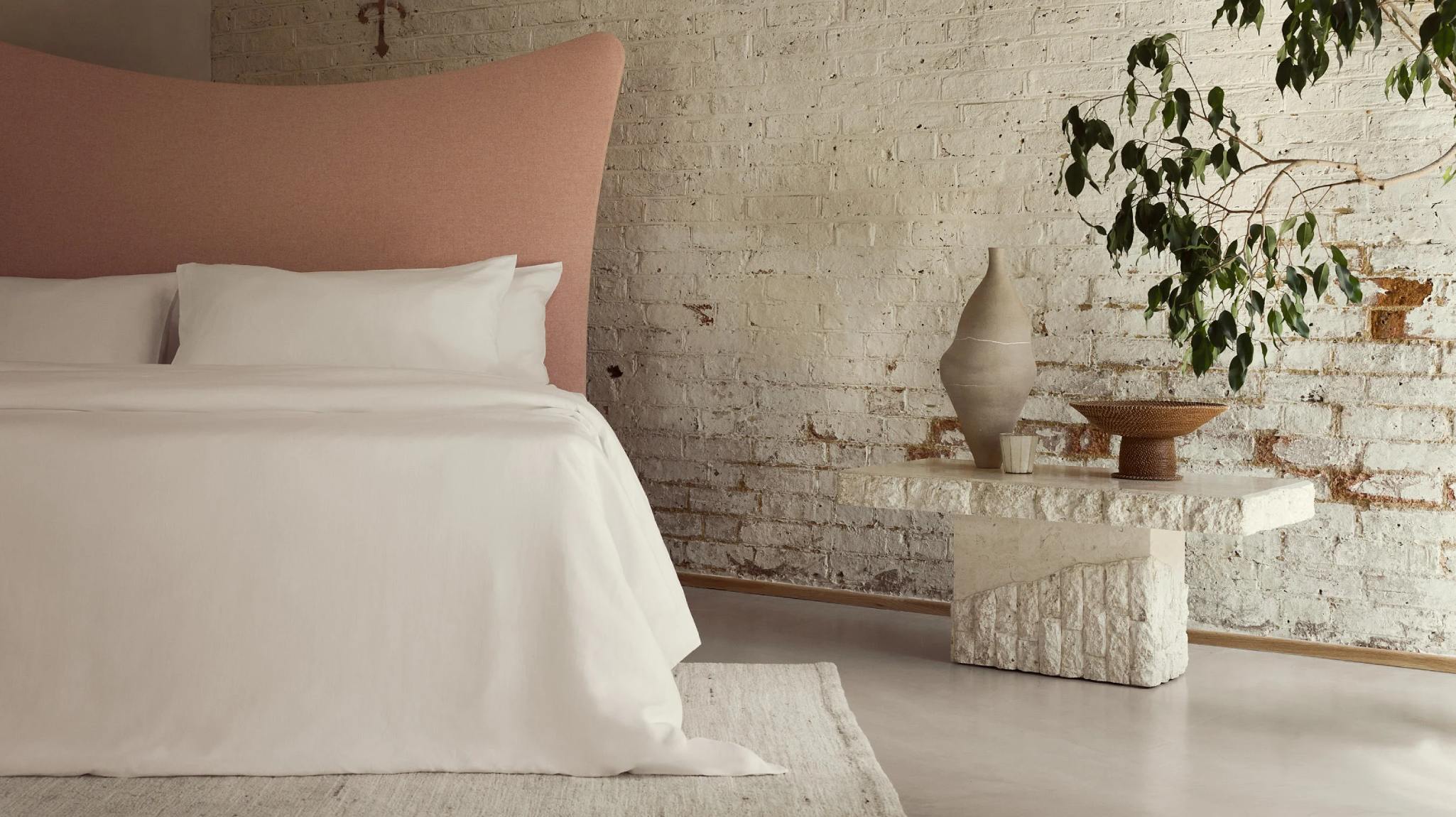
SET THE FOUNDATIONS
The foundation of a good night’s sleep starts with a supportive bed and mattress. According to a study on sleep quality published in SAGE Journals co-authored by Dr Robbins, “mattress and pillows were really high on the list of sleep satisfaction,” she says.
Support from your bed is paramount to good sleep. “The mattress is of course the foundation of restorative sleep,” Dr Robbins says. “An unsupportive mattress will limit the quality of your sleep.” She adds that while it’s a myth that there is an optimal sleeping position for all of us, the right mattress needs to support the spine and keep our head, neck and back in the correct alignment throughout the night. “There’s nothing worse than waking up with a stiff neck,” she says. A made-to-order, bespoke Savoir mattress, which is tailored to each sleeper is designed to keep the spine in proper alignment all night and relieve pressure points. Which can make all the difference to perfect sleep.
Choosing a bed, mattress and bedding from naturally breathable and thermo-regulating materials is important for maintaining a cool body temperature – which helps you sleep longer, according to a study reported in the journal Nature And Science Of Sleep. “A mattress that retains heat will also limit the quality of your sleep,” Dr Robbins says. Savoir has always been dedicated to using natural fibres that support sleep by helping regulate the body’s temperature and wick away moisture.
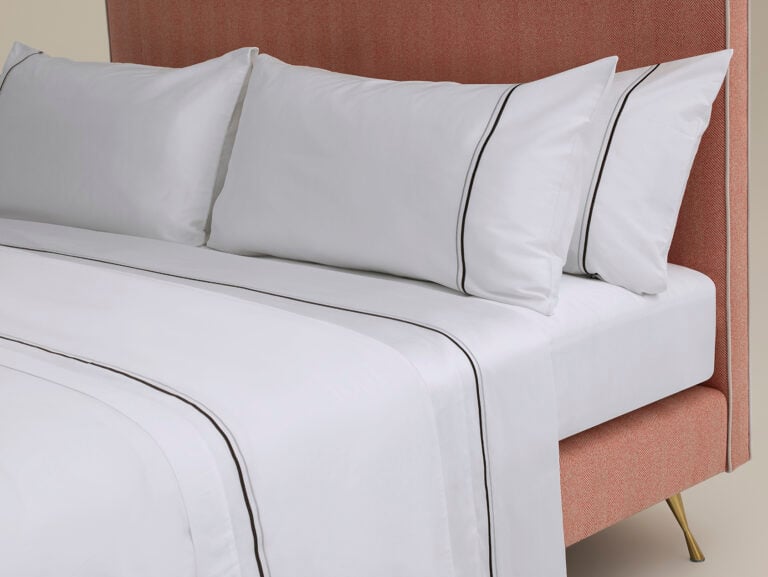
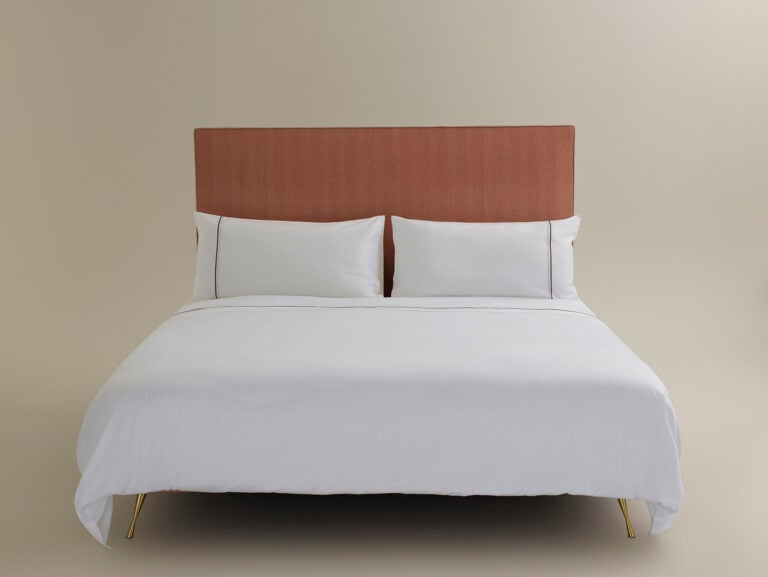
The Dream Cotton Sateen Bed Linen Set
300 Thread Count
SET A BEDTIME
We all know that we should aim for between seven to nine hours a night, something science tells us is optimum for most adults. But while duration is one aspect, Dr Robbins says focusing on consistency and quality, especially around our sleep routine, is far more productive.
Just as children need set bedtimes, so do adults. “Falling asleep at the same time and waking up at the same time, that’s everything,” Dr Robbins says. The reason is that it allows the body to work with – rather than fight – its natural circadian rhythm, our body’s internal 24-hour clock that controls the timings of every organ system and bodily process. If we stick to a schedule, our body learns when to expect sleep and wakefulness. It means an end to staying up late and weekend lie-ins. “Any more than an hour’s difference from your normal schedule and you will actually impose jetlag-like symptoms on your brain,” she says.
Instead, a disciplined approach will make your sleep more productive. “The secret is, when you stick to a strict bedtime and wake-up time, you actually need less sleep because your sleep becomes so efficient,” she says.
Falling asleep at the same time and waking up at the same time, that’s everything. (…) The secret is, when you stick to a strict bedtime and wake-up time, you actually need less sleep because your sleep becomes so efficient.
UNWIND FULLY
Spending time on a calming routine before bed helps us fall asleep quicker, according to studies. “The time before bed is actually very much part of our sleep routine,” Dr Robbins says. “People often think that they can switch from going a million miles an hour to sleep, instantly, and it doesn’t happen that way.”
The key is to feel comforted and secure – be that a bath or an audiobook. “It’s all the things we do for our children when we put them to bed but have got out of the habit of doing for ourselves,” Dr Robbins says. “Comfort is something we all crave as human beings. It is this comfort that allows us to slip into a sound sleep at night.”
One way to help yourself wind down is to practice meditating or breathwork. Research suggests that both activities can help improve insomnia as well as sleep quality for those with healthy sleep. “All of us encounter stress — it’s part of our everyday life — and how we deal with it impacts our sleep,” she says. “Meditation has been shown to help.”


I think lots of leaders in businesses are now realising that afternoon performance is better for a short nap. (…) It’s compelling to think that the future of the workplace might be more open to that.
DON’T COUNT SHEEP
Lying in bed awake at 3 am is one of life’s greatest frustrations. However, just hoping to drift back to sleep could be counterproductive. “It’s something many of us were told to do – stay in bed if we wake up. But as a sleep scientist, I realise that it’s actually one of the worst things that we can do if we’re struggling to sleep,” Dr Robbins says.
Instead, she advises getting up after 15 minutes, keeping the lights low and either doing some gentle yoga, reading or doing some non-stimulating tasks, like folding laundry, before returning to bed. Studies show that getting out of bed if you struggle to get back to sleep can actually help you nod off sooner. “We want to keep the bed as the place where sleep happens,” she says.
RECHARGE WITH A NAP
If you feel an afternoon slump, instead of reaching for a coffee, try a short, restorative nap. “Naps can be part of a healthy sleep routine,” Dr Robbins says. “They can be used to replenish sleep debt, or just when you get that sleepy feeling after lunch.” In one New Zealand study, researchers found that those who had a short sleep at work scored better on tests of alertness and performance. “I think lots of leaders in businesses are now realising that afternoon performance is better for a short nap,” Dr Robbins says. “It’s compelling to think that the future of the workplace might be more open to that.”
DR ROBBINS’ TIPS FOR NAPPING
Aim for a 20-minute nap between 2-4 pm. “Just after lunch, our body temperature dips, which coupled with the sensation of a full stomach can make you feel quite naturally sleepy,” she says. Find a quiet place to lie down comfortably, for those working from home, drawing the curtains and retreating to your Savoir is the obvious choice. But increasingly, offices and gyms are investing in nap pods for staff too.
Then, put on an eye mask to block out the afternoon light. Set an alarm to keep it short (20 minutes is ideal, but even 10 minutes can help). “If you’ve had a night of poor sleep, you could go up to 90 minutes and aim to repay a bit of your sleep debt. But for those who are healthy sleepers, more than 20 minutes can affect your next night’s sleep.
Find out more about Dr. Rebecca Robbins. Join us on our journey with Dr Robbins as we explore more tips for better sleep and the impact sleep has on our immunity, anti-ageing, performance, and brain health.
Savoir sleep stories
Can napping boost your creativity?
In recent years, the phenomenon of a ‘power nap’ has gained reputable support from many experts across the globe. Countless studies have shown that a quick afternoon snooze can boost our productivity and fuel us for the day. Today, we discover exactly how we can benefit from a nap, and what it takes to get napping right.
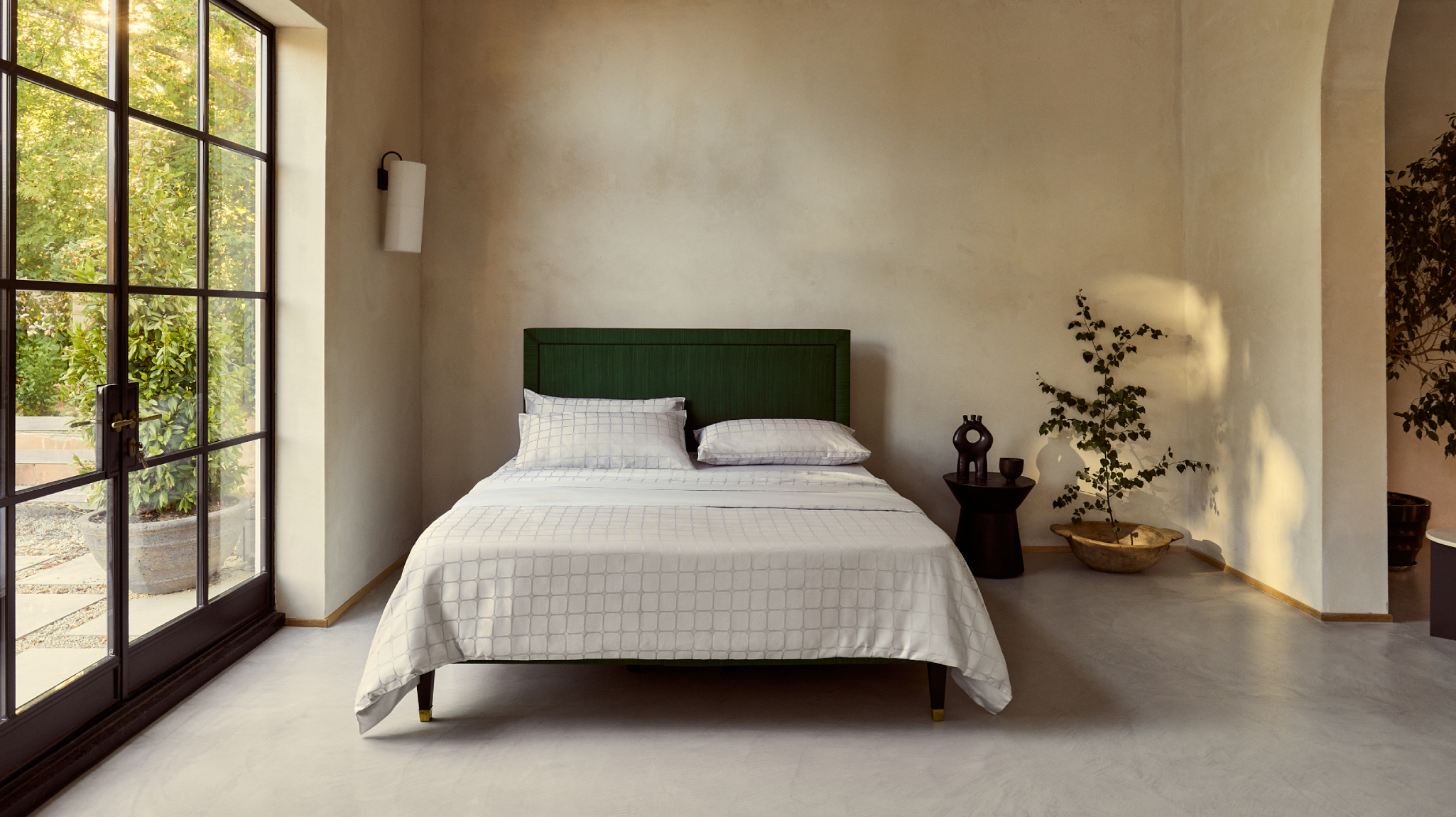
While increased energy and productivity provide great incentives to nap, our curiosity has driven us to discover another distinct benefit of indulging in an afternoon snooze – its impact on our creative thinking and problem-solving abilities. In today’s fast-paced world, sleep is nature’s balm. It allows us to relax and refresh in the most pleasurable way. As an active process, it also serves many vital functions. From memory consolidation and improved decision-making through to the clearance of brain toxins and cell recovery. It’s why at Savoir we have spent over a century discovering the benefits of a good night’s rest and travelled to every corner of the world in search of the best natural ingredients. Throughout our journey, we have learned from the most esteemed experts, who have guided us towards understanding the science of sleep. One of those individuals is sleep scientist, author, and sleep expert to Savoir, Dr Rebecca Robbins.
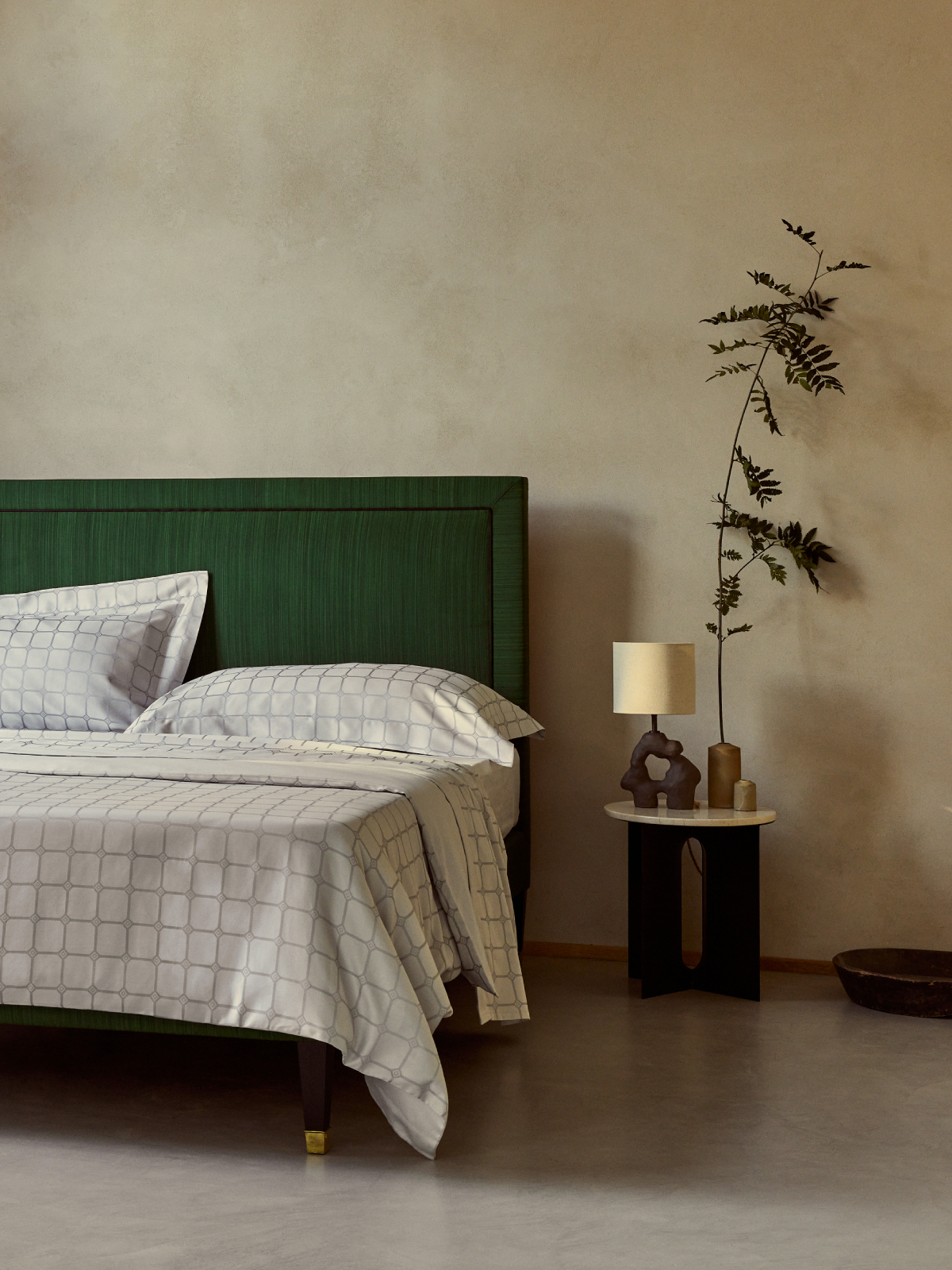
Together with Dr Robbins, we’ve explored the importance of a consistent schedule that allows the sleeper to reap the benefits of consolidated sleep. Marked by symphonic patterning of entering and re-entering different sleep stages, each characterised by different patterns of brain and body activity. A consistent, consolidated block of sleep allows for the repetition and rehearsing of events from the day, transitioning memories from short to long-term storage and enhancing our ability to gain insight after waking.
While the importance of nocturnal sleep remains unchallenged, here, we focus on understanding the lesser-discovered stage of sleep, the N1, also known as Hypnagogia. This is the first part of our sleep cycle, attainable through a brief nap, and its surprising benefits may leave you leaning toward a mid-day snooze.
[…] recent evidence suggests that the onset of sleep, specifically the transition from wake to sleep (Non-REM, N1 sleep), is a time where we are potentially better able to forge connections between concepts in our recent memory stores and wake having boosted our creativity.
Anecdotally, both Thomas Edison and Salvador Dalí relied on this short stage of sleep to fuel their problem-solving abilities. They would allow themselves to snooze while holding a heavy object in their hand. Once they entered other stages of sleep, muscles relaxed and caused the object they were holding to fall and wake them up. When awakened from their nap, they’d immediately return to work, fuelled with creativity that enabled them to solve problems they faced beforehand.
Researchers at the Sorbonne Université Paris Brain Institute recruited participants and gave them a math problem requiring creativity. They then offered them the opportunity to sleep and found that those who spent at least 15 seconds in N1 were three times more likely to find the solution than those who remained awake. More recently, researchers at MIT and Harvard Medical School explored the creativity of participants who were able to indulge in a brief nap rich in N1. They found that not only a short-term sleep in N1 boosted post-sleep creativity, but also that dream incubation, or giving a person a specific prompt and challenging them to dream about that topic, even further increased creativity.
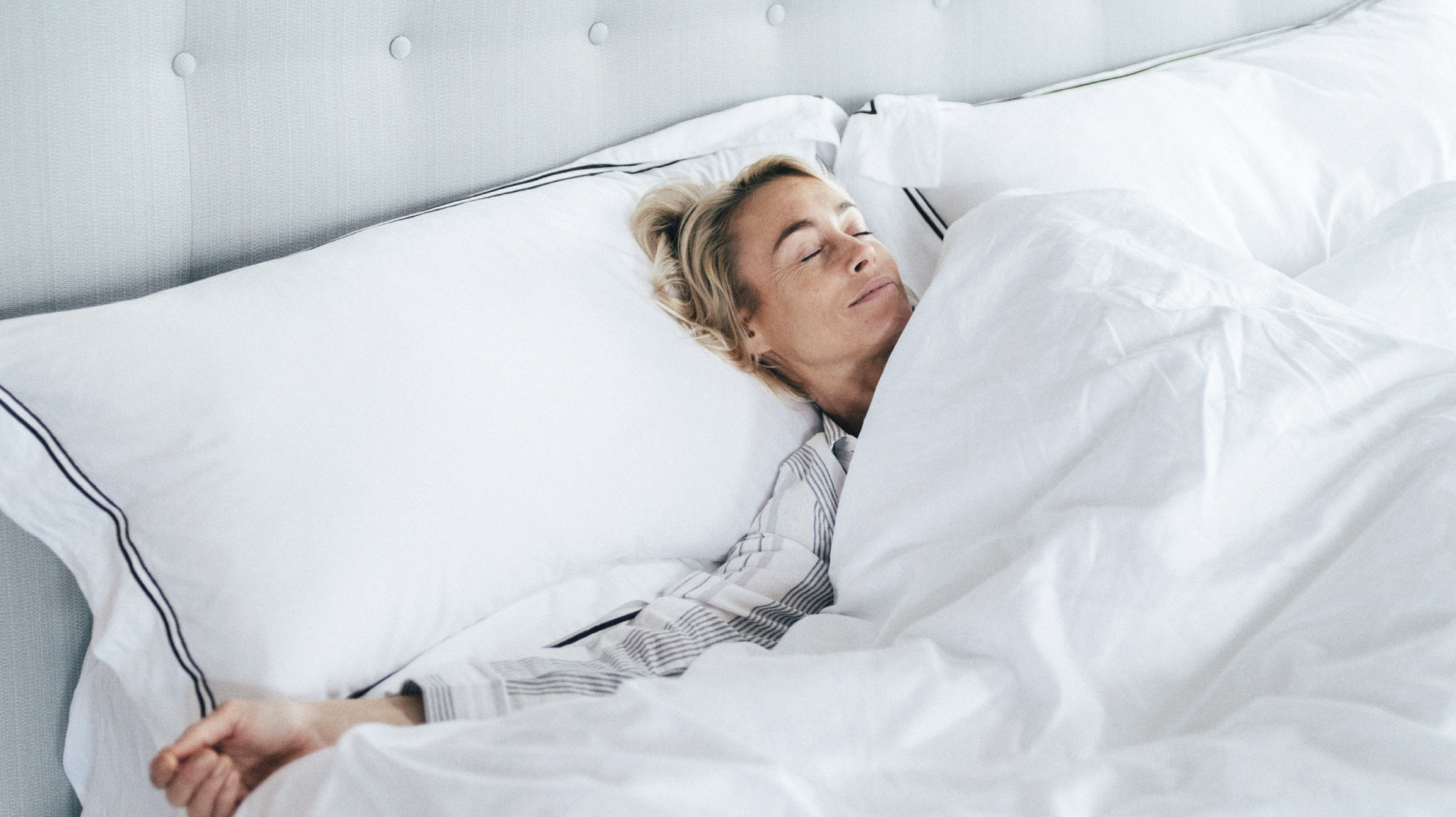
Elly Suh, the multi-award-winning violinist, and co-star of our latest campaign, ‘A Place to Dream,’ always includes a nap as part of her pre-concert preparations. While practising on the day of the performance can do more harm than good, resting and recharging are considered mandatory for Elly. It not only allows her to feel refreshed and ready to be on stage but also fuels her with clarity and creativity.
[…] the day of a performance is probably my favourite day. It’s really a time I can just take to rest and pamper myself. I don’t do much practising, maybe just a bit of warm-up – I just try to take it easy. Two or three hours before the concert I’ll take a little nap. And the rest of the time, I just relax, drink tea, and enjoy some good food.
In practical terms, the next time you are faced with a challenging project or a difficult problem, instead of reaching for a cup of coffee, consider finding a quiet place and challenge yourself to dream about the topic. Below, Dr Robbins shares with us her tips on napping efficiently, to make sure you make the best out of your afternoon snooze:
“Afternoon is the ideal time for a nap, simply because it is a time when we have likely been awake for the longest, and we all experience a slight dip in core body temperature. To reap the benefits of a nap with respect to creativity, the research suggests a short nap to be most optimal (a duration of 15 minutes or fewer), but if you are very tired, a longer nap can be restorative (a duration of 90 minutes). The ideal environment for a nap would be a quiet, dark place where you can lie down, uninterrupted. And last but most importantly, anyone who is experiencing night-time sleep difficulties should not nap, for doing so can reduce sleep pressure and make it difficult for that person to fall asleep at night.”
At Savoir, we are committed to understanding the ever-increasing benefits of a good night’s rest. To discover more stories about the science of sleep, read our conversation with Dr Rebecca Robbins, who highlights the importance of routine and sleep hygiene as key tools for enjoying a lifetime of quality rest.
Discover more about the science of sleep
Everything you need to know about insomnia
Introducing our new series, Sleep Matters, where we dive into sleep problems some of you may experience and discover solutions that’ll bring you a lifetime of restorative sleep. In our first issue, we uncover everything you need to know about insomnia and its effects.
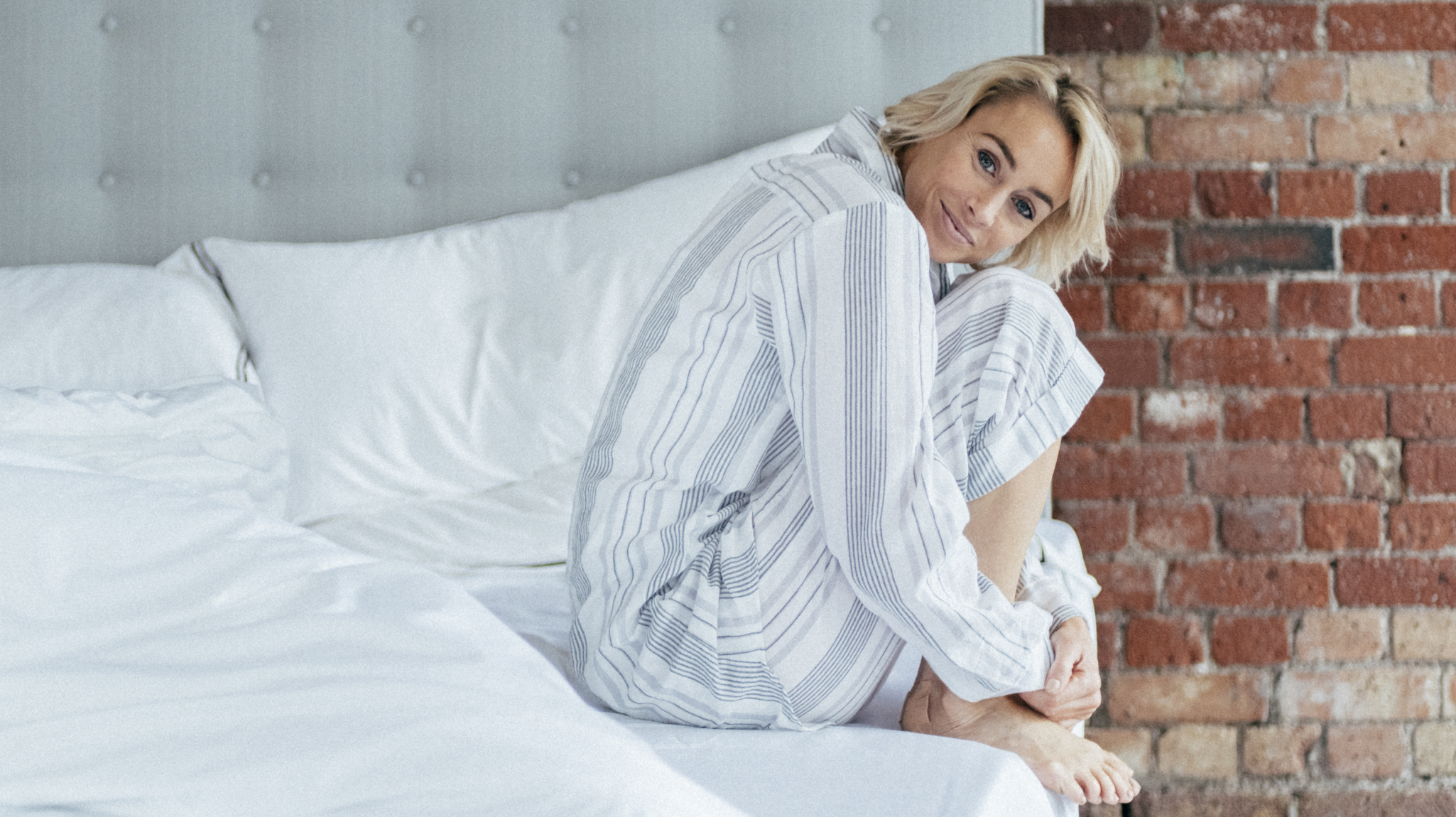
While many elements contribute to enjoying a good night’s rest, for some, there are concerns that good sleep hygiene and bedtime routines simply can’t fix. The effects of inadequate sleep can be detrimental to your health. Affecting next-day performance, causing irritability, and compromising your immune system.
Recent research shows that 10% of the worldwide population struggles with insomnia. Additionally, t’s estimated that 35% of people will experience symptoms of insomnia it at some point in their lifetime. Although for most, these symptoms can ease over time, there are others, who’ll experience long-term effects of the disorder.
To understand more, we sit down with Sleep Expert Dr Rebecca Robbins. And together, we uncover everything you need to know about insomnia, the science behind sleep problems and discover how we can tackle their effects so that we can truly enjoy a restorative night’s rest.
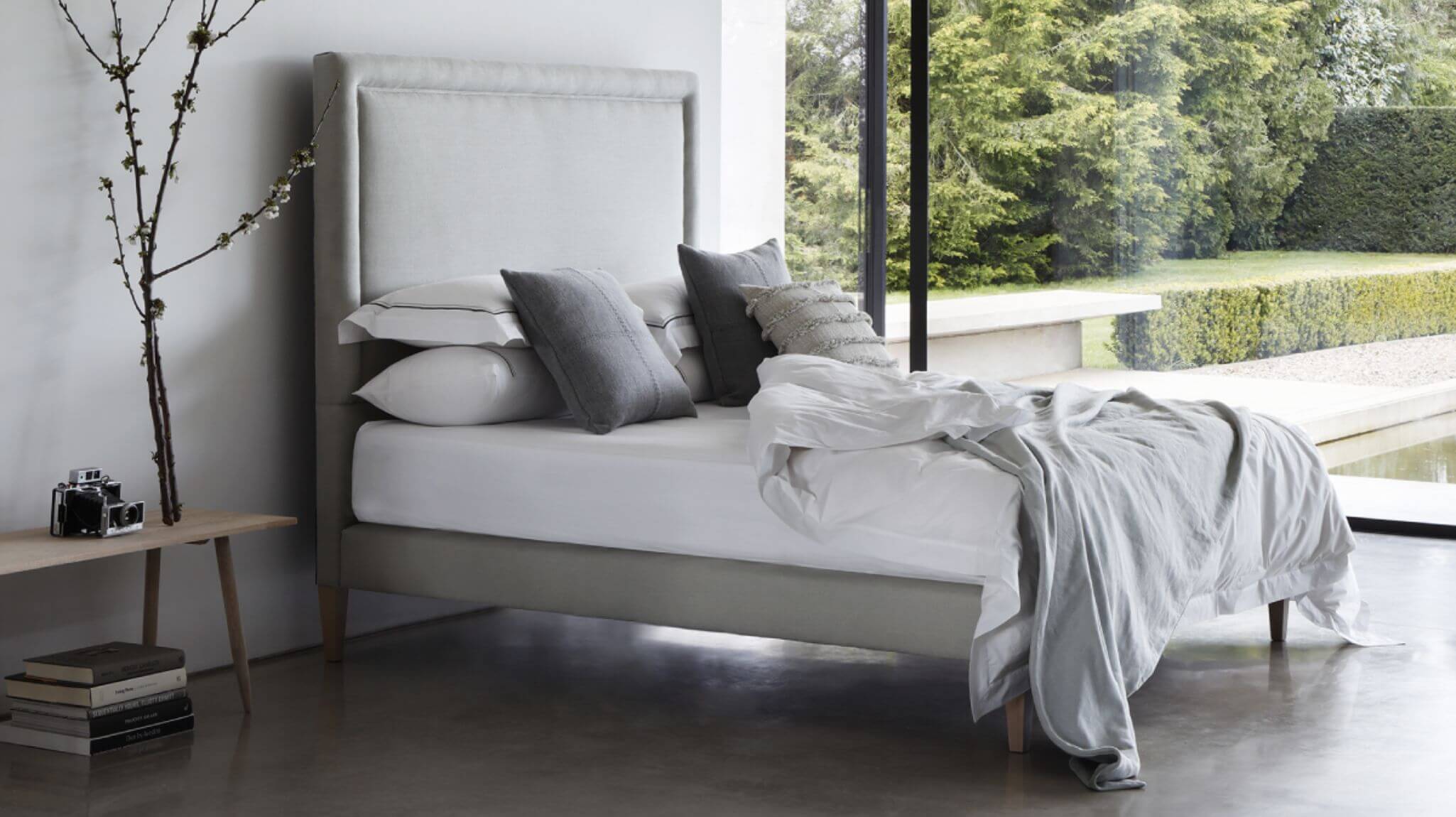
According to the American Academy of Sleep Medicine, insomnia is a clinical diagnosis. It’s defined as the subjective perception of difficulty with sleep initiation, duration, consolidation, or quality that occurs despite adequate opportunity for sleep and results in daytime impairment. Insomnia becomes chronic when a person begins having difficulty falling asleep or staying asleep for as little as three nights per week for at least two consecutive weeks up to three months.
“So, if you find it difficult to get the rest you need despite giving yourself sufficient time to sleep, it might be time to speak to a health professional, who can diagnose you.”, advises Dr Robbins.
Savoir: What are the most common causes of insomnia?
Dr Robbins: There are many causes of insomnia, ranging from physical, such as hormonal fluctuations, injuries or pain. Psychological causes such as depression and anxiety, and situational, such as when we experience jetlag.
We all can likely relate to the experience of insomnia symptoms at one time or another in our lives. The truth is, sleep is the result of our waking days. This can include stressful events like frustrating professional or personal experiences. All of these can limit our ability to fall asleep or maintain sleep.
The truth is, sleep is the result of our waking days.
Is there a link between circadian rhythm and insomnia?
Circadian rhythm disorder symptoms are similar to those of insomnia. They can include difficulty falling, staying asleep or waking up too early.
However, symptoms of the former are due to a disruption in the timing of sleep, which can be caused by irregular sleeping times, inadequate time in the daylight and poor diet. Whereas an individual suffering from insomnia can experience all the symptoms even if they practise healthy sleep hygiene.

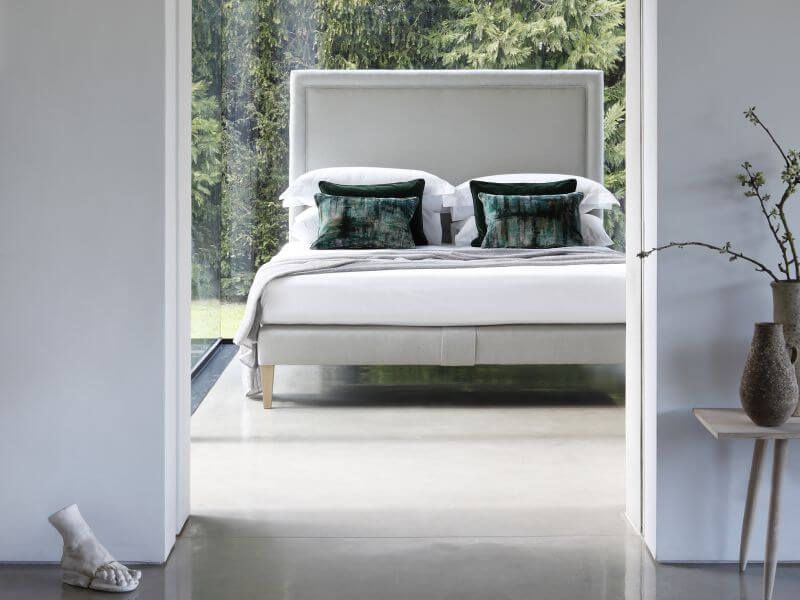
Are there any groups of people who are more likely to be at risk of insomnia?
There are a few groups that are at greater risk of insomnia. Unfortunately, sleep systems decline with age, making it more difficult to fall asleep and consolidate sleep. For these reasons, insomnia is more likely among older adults than younger adults. However, individuals with family history of insomnia and those that are prone to stress and worry are also at greater risk. There are certain medical and psychiatric disorders, such as heart disease, asthma, anxiety, and depression that can make an individual more likely to experience insomnia too.
What are the consequences of untreated insomnia?
Untreated insomnia can present short consequences, including irritability, feelings of anxiety and depression. It can also affect our immune system and increase the risk of colds and flu. There is also research that estimates the costs of untreated insomnia to be as high as $100 billion US dollars per year. This is due to additional healthcare costs, reduced productivity, and accidents.
Concerningly, in the longer term, including increased risk for chronic conditions, such as cardiovascular disease and obesity. There is also evidence that untreated insomnia could place older adults at an increased risk of dementia and Alzheimer’s disease, therefore, underscoring the importance of being treated.
How does insomnia affect our mental and physical well-being?
Those suffering from insomnia can face myriad challenges to their mental and physical well-being and performance. Untreated insomnia presents risks for brain fog and lower productivity, shorter attention span, and less creative problem-solving. An individual may also experience increased feelings of anxiety, which can greatly affect both their personal and professional life.

We’re more aware of our well-being and the importance sleep plays in this. Does this mean there are fewer people suffering from insomnia than before the COVID-19 pandemic?
We do have evidence that symptoms of insomnia increased in prevalence across the globe amidst the COVID-19 pandemic, which was marked by conditions ripe for insomnia, including tremendous uncertainty and unknown.
What can someone do to manage the symptoms of insomnia?
Fortunately, there is a range of treatments for insomnia. These include both pharmacological interventions as well as behavioural treatments. Excitedly, research shows that these two pathways are both highly efficacious for attenuating insomnia symptoms and improving quality of life.
On the behavioural side, the gold standard treatment is called “Cognitive Behavioural Therapy for Insomnia” and includes specific recommendations to help the person suffering from insomnia to reframe how they think about sleep and their bedroom. Another central piece of CBTI is relaxation training and learning meditation and mindfulness exercises to ease tension around bedtime.
Untreated insomnia presents risks for brain fog and lower productivity, shorter attention span, and less creative problem-solving.
Lastly, are there any precautions we can take to prevent insomnia?
There are a handful of precautions we can all take. Following a healthy diet and exercising regularly can greatly impact an individual’s likelihood to experience insomnia. You should also introduce a consistent sleeping routine, spend an adequate amount of time in the daylight and outdoors and avoid alcohol and caffeine after 2pm.
If the symptoms of insomnia sound like something you are experiencing, we recommend reaching out to a Sleep Specialist, who can assist you further and recommend the right treatment for you.
Dr Robbins is Assistant Professor in Medicine at Harvard Medical School and an Associate Scientist at the Brigham and Women’s Hospital and has been an expert on the science of sleep for Savoir since 2020.
Discover the science of sleep
Forget the recommended 8 hours of sleep - focus on quality instead
Join us in conversation with Harvard’s Sleep Scientist, Dr Rebecca Robbins, as she explains why focusing on quality instead of quantity of sleep can have a tremendous effect on our health and overall well-being.
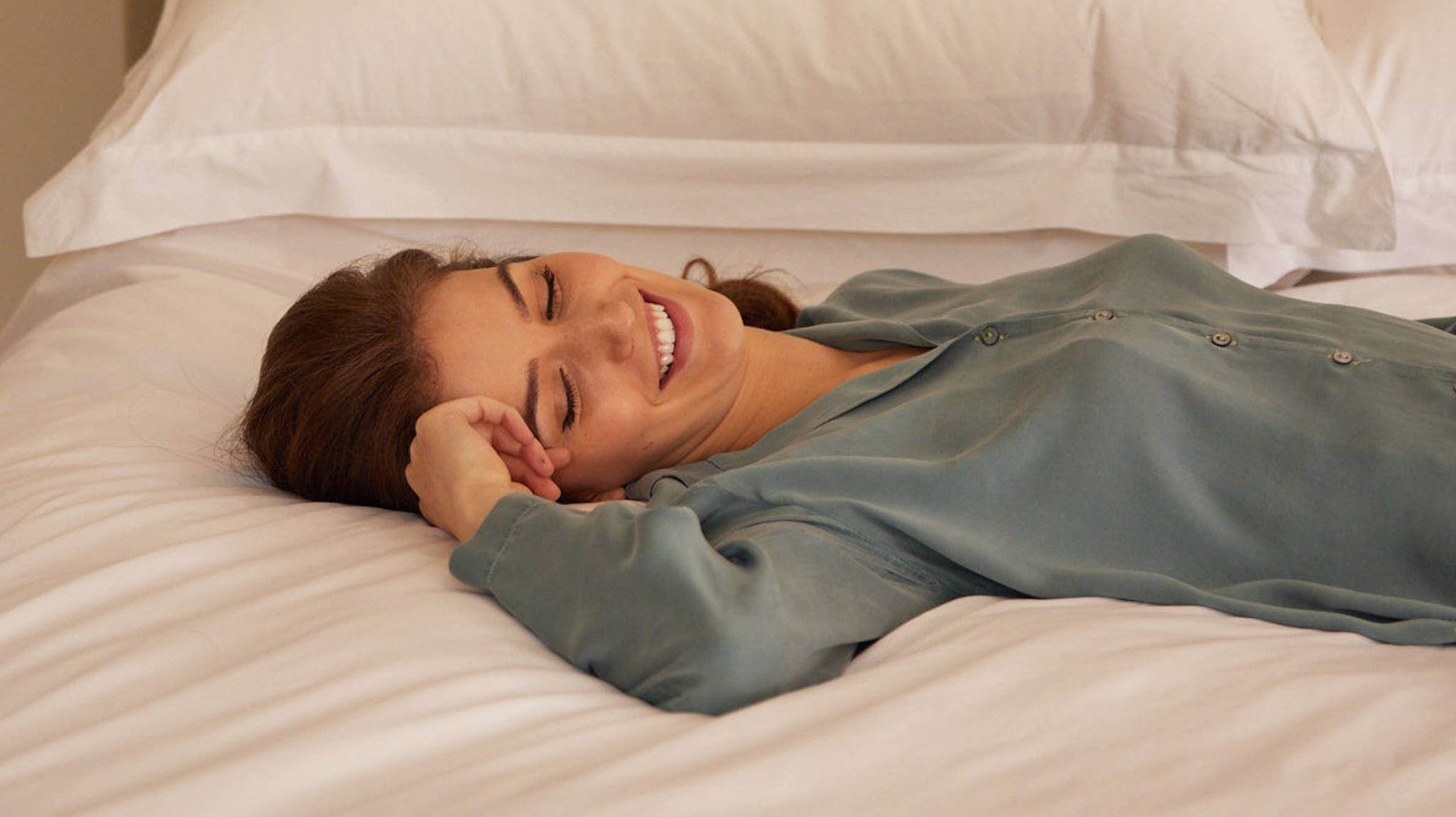
Forget the eight hours of recommended sleep. Believe it or not, the quality of our sleep is as important, if not more so, than the quantity of sleep that we get.
Savoir: Firstly, are there any tell-tale signs that we are not achieving quality sleep?
Dr Robbins: Even a well-rested person may experience tiredness in the afternoon. This fatigue is due to a drop in our body temperature between 1-5 pm. This is particularly evident for those not achieving quality sleep. So much so, that they will look for means such as coffee or other stimulants to keep them awake during these hours. And so, a sleep-deprived person will experience significant sluggishness and sleepiness in the afternoon. If you find yourself desperate for stimulants to maintain alertness, it is a sure sign you are not getting enough quality sleep at night.
Furthermore, research has shown that sleep loss reduces your VO2 max, the amount of oxygen your body can absorb during exercise, which fuels your workout. Inadequate sleep leaves us less motivated to exercise and less able to get a good workout when we do exercise.
As well as exercising, sleep can also impact appetite. When we are sleep deprived, the hormones that regulate our appetite are thrown off balance. Specifically, the hormone ‘leptin’ that tells the brain when we have had enough to eat is inhibited. This leaves us less able to understand when we have had enough to eat and therefore prone to overeating. You make may also make worse nutrition choices. When we are well-rested, we are more motivated to eat healthy meals. But when we are sleep-deprived, we are more likely to reach for sugary, carbohydrate-dense foods.
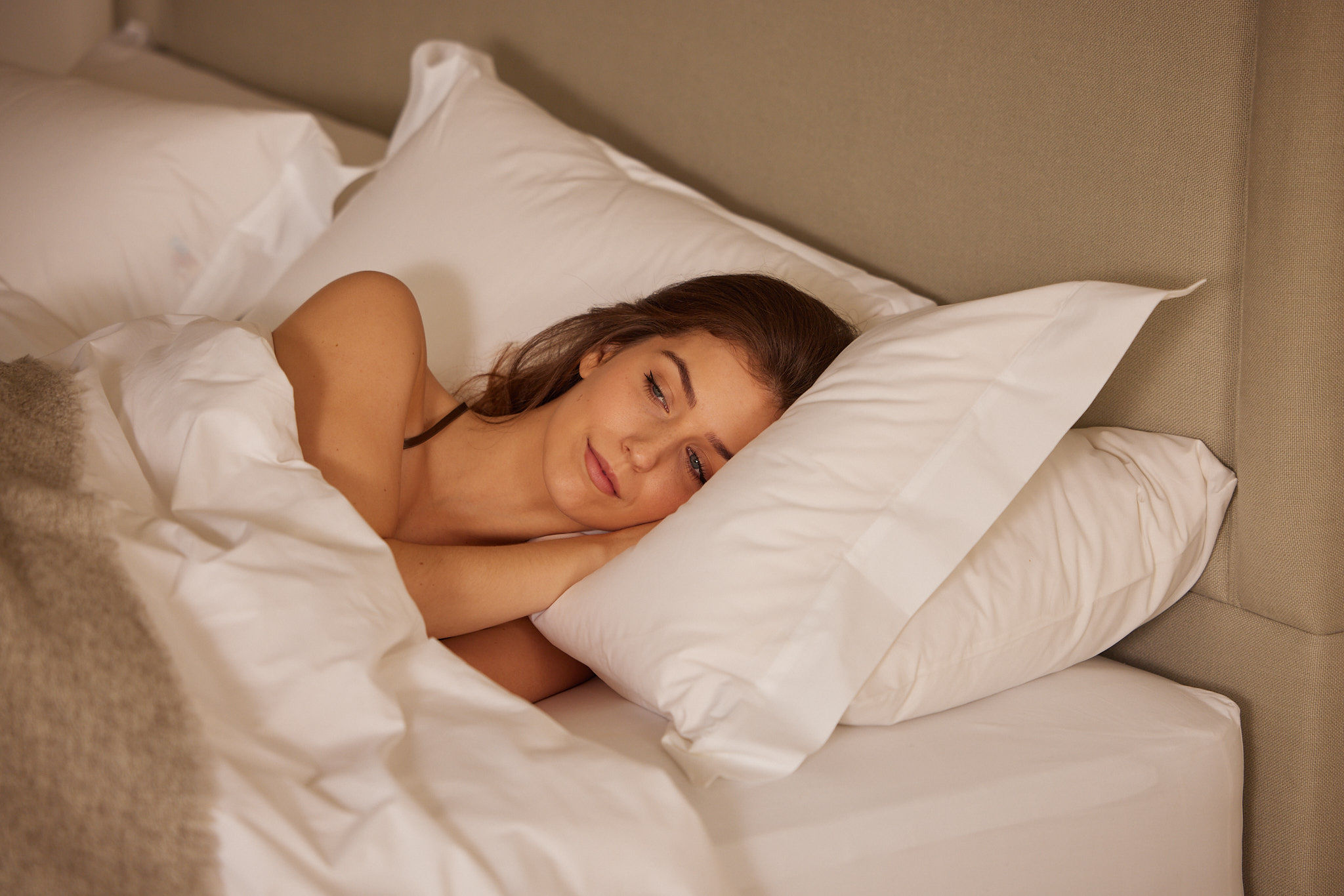
By focusing on getting good quality sleep, we can then focus on the constellation of sleep and things that improve our well-being. And believe it or not, good quality sleep starts as soon as we wake up.
What role does circadian rhythm play in achieving quality sleep?
Our ability to fall asleep and obtain healthy sleep is, in part, governed by our internal circadian rhythm. This system evolves to understand when we should be alert and when we should be tired. If we keep our bedtimes consistent, our circadian rhythm becomes refined and well ‘trained’ in understanding when we are tired and awake.
If we keep different bed and wake times, then our internal clock is limited in knowing when we should be tired or awake. Leaving us in a constant state of disorientation. This is a recommendation we give our children. We stick to a consistent bedtime routines for them. However, we are guilty of not doing this ourselves. If you keep a consistent sleep schedule, you may find you fall asleep faster and spend less time tossing and turning.
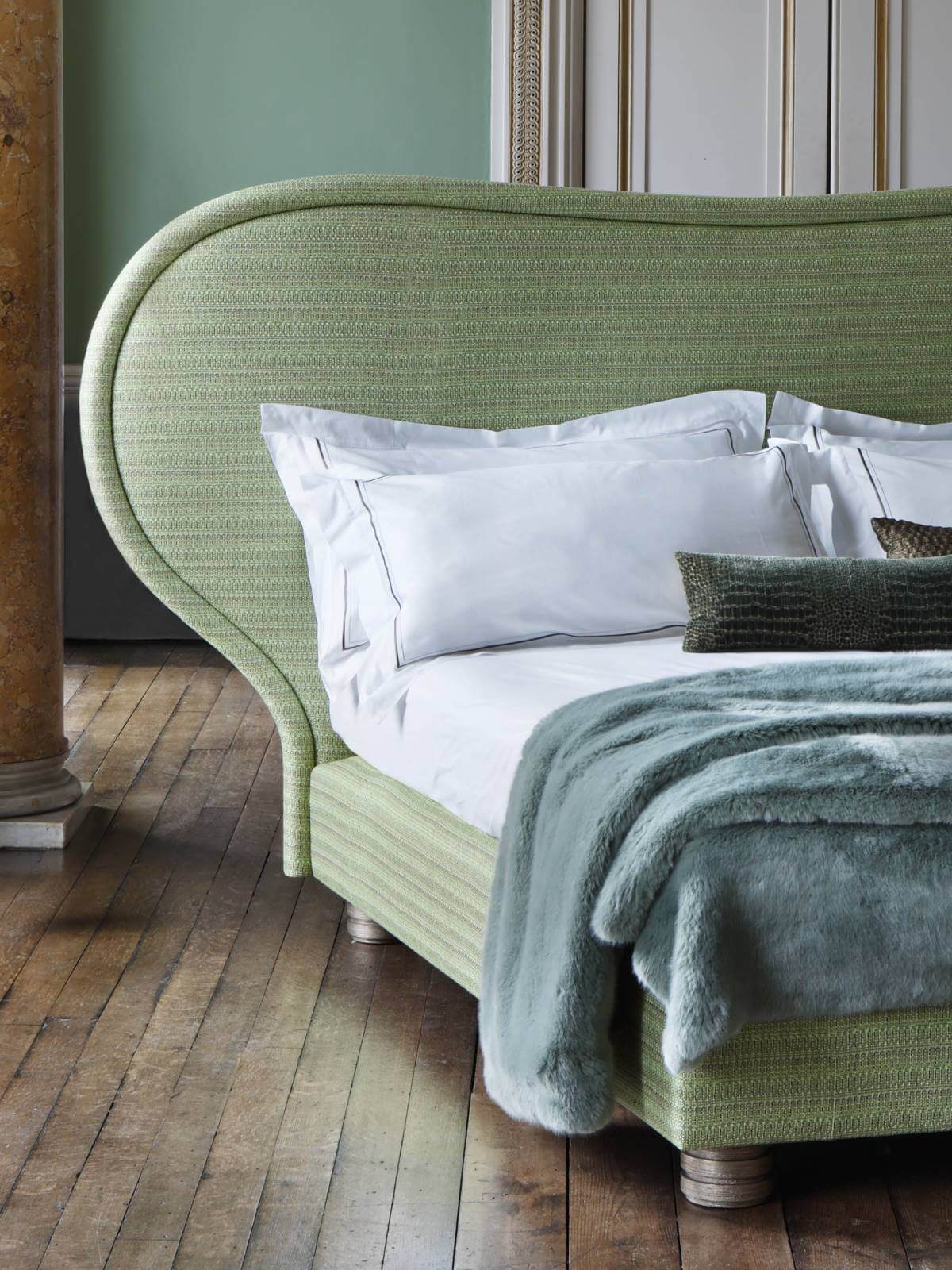
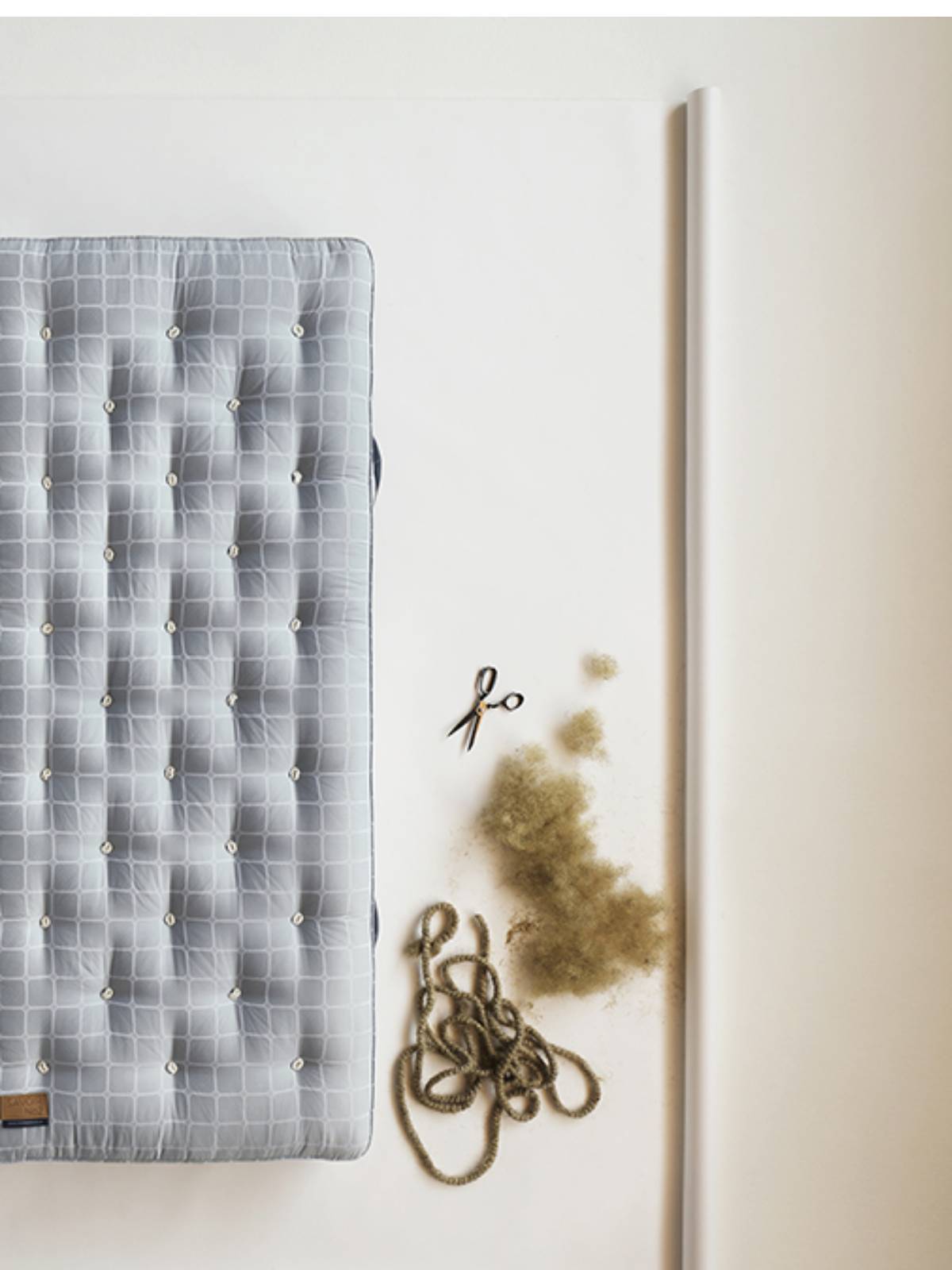
Can you share some strategies to achieve quality sleep?
Believe it or not, a good night’s sleep starts when we wake up. If you are struggling with poor-quality sleep, these are my top three considerations. Firstly, try introducing a mindfulness-based practice. Meditation and Breathwork are about being present and at peace in the moment. Giving us the tools needed to control our breathing, which leads to a calmer mind and a relaxed body. These are the essential skills to help us fall asleep. Anyone who struggles to fall asleep and spends time tossing and turning may benefit from starting a mindfulness-based practice.
Secondly, alcohol consumed in small doses may help you fall asleep, but much more than that will dramatically reduce the quality of your sleep. Specifically, alcohol pulls you out of deeper stages of sleep, so that you may spend time sleeping but wake up not feeling refreshed.
And finally, stress is the number one cause of insomnia, and managing our emotions and stress is central to our ability to get healthy, restorative sleep. If you kick off a healthy exercise routine, you may also find you fall asleep faster, for exercise releases endorphins which are mood elevators. Not surprisingly, research shows that those who exercise regularly take less time to fall asleep and obtain more restorative sleep than those who do not.
Discover our latest video series, titled the ‘Sleep Wisdom‘, where Dr Rebecca Robbins helps us debunk common sleep myths, understand the science of sleep and more.
Discover more stories
A guide to keeping cool while you sleep
Science indicates that temperature plays an integral role in the quality of your sleep. It’s essential that your body remains within a neutral temperature zone, to enjoy a restful night’s sleep.
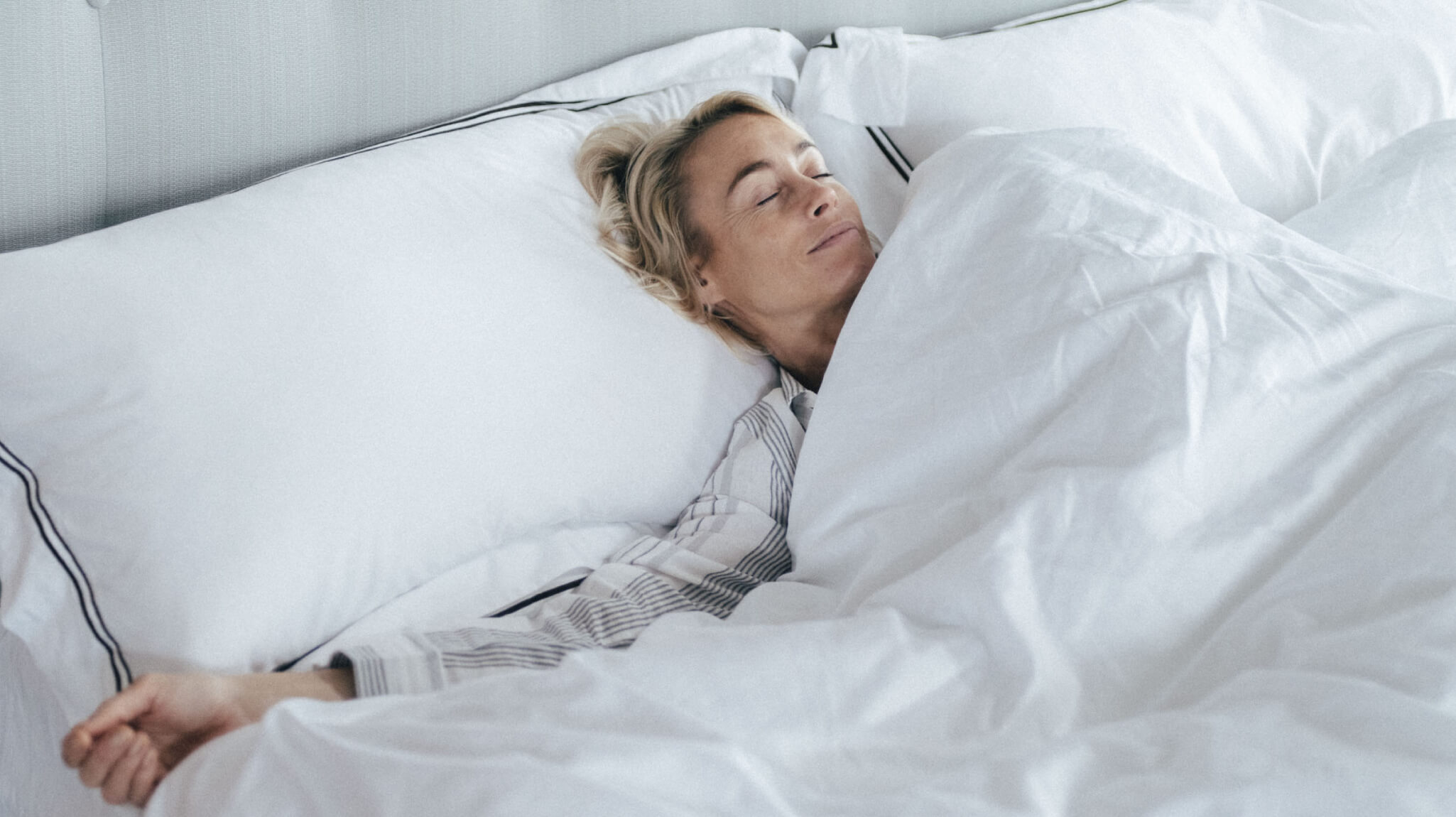
Your body’s ability to regulate temperature is a big part of how it regulates sleep. During REM sleep the brain’s temperature-regulating cells switch off and your temperature is impacted by your bed and sleeping surface. At this stage of the sleep cycle, you may begin to sweat and overheat. If your bed and sleeping surface are unable to breathe and disperse moisture effectively, your body temperature may start to rise. Through keeping cool, sleep disturbances are reduced helping you to achieve a good night’s sleep.
Natural materials such as wool and horse tail allow the sleeping surface to breathe and wick away moisture. This helps you to maintain an optimal, even temperature throughout the night. Synthetic fibres, such as latex and foams, can cause sweating as they are unable to breathe and tend to retain heat.
From the perfect bedding for warm nights to a sleeping surface with an abundance of natural materials, we’ve compiled our guide to help you keep cool and enjoy restorative sleep.
In a warm sleep environment, we are more likely to have nightmares. We may also experience sleep fragmentation. So, at night we optimally want to be in a thermal neutral zone, which is on the slightly cooler side.

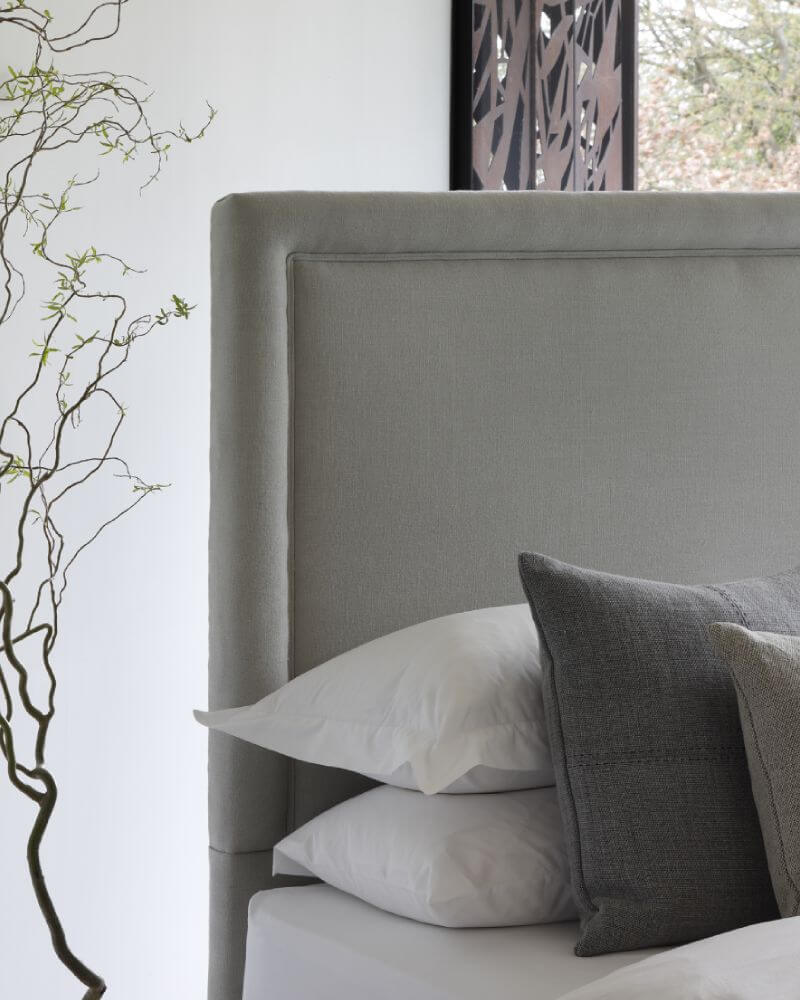
Natural Materials
Choosing natural materials for your bedding and pyjamas will help regulate your body’s temperature, resulting in a deeper, relaxing sleep. Silk, linen, and cashmere are summer-time classics, thanks to their soft and light texture. Whilst wool and horse tail may not spring to mind when it comes to keeping cool, these natural fibres boast wonderful moisture-wicking properties to help regulate your body temperature.
To immediately change to a natural sleeping surface a topper is a great solution. Filled with an abundance of naturally breathable materials, toppers can instantly elevate your summer sleep. A mattress protector is an element of bedding that is often overlooked during the warmer months. However, a climate control mattress protector continues to help breathability, whilst helping to keep the sleeping surface clean and dry. Ours is filled with Tencel fibres which disperse moisture and keep it away from the skin to help combat overheating, allowing you to keep cool. It can also be machine washed to ensure it stays soft and fresh.
Bedding
Every element of your bedding should help regulate your temperature. If goose down is your preference, choose a lower tog such as 4.5 for during warmer months, and opt for a higher tog in the winter. A natural down duvet controls your body’s temperature wonderfully, making it a great choice all year round.
An alternative to down is a pure silk duvet. The super soft natural fibres help to efficiently wick moisture away from your skin, preventing you from overheating. Our silk duvet is also encased in a soft Tencel fabric cover, making it perfect for balmy summer nights.
Ensuring your bedding fits the season is key. Switching your winter bedding to a lighter weight or different material will make a big difference to your sleep in the summer. Whilst upgrading to a higher tog will ensure you’re comfortable during the colder months.
A good choice of bed linen for the warmer months is percale cotton. High-quality percale combines extra-long staple fibres and high thread count to create the perfect balance of breathability and softness. For an ultra-lightweight and super soft feel, choose Giza cotton, which has the longest and finest fibres available. The Drift collection is available in both a 400 thread count and an ultra-fine Giza 87 cotton.
Luxuriously cool
Airflow
If the temperature of your bedroom or sleep environment rises above 23.8°C (75°F) it can disturb your sleep and may even wake you. To keep the temperature down on extremely hot days, it may help to reduce the hot air and sunlight that enters the space during the day. By keeping certain doors and windows shut with blinds and curtains closed, to help prevent the room from warming up during the day. When the temperature drops, the evening breeze and cooling night air can then enter the space.
Pyjamas
Cotton pyjamas are a classic bed attire for every season. They offer great breathability and help to combat overheating during warmer weather. If you prefer a softer feel, silk is a wonderful alternative. Super soft on your skin, the natural silk fibres wick away moisture whilst you sleep, maintaining your normal body temperature.
By keeping cool and minimising disturbances you can enjoy a restful night’s sleep, on the warmest and the coldest of nights.
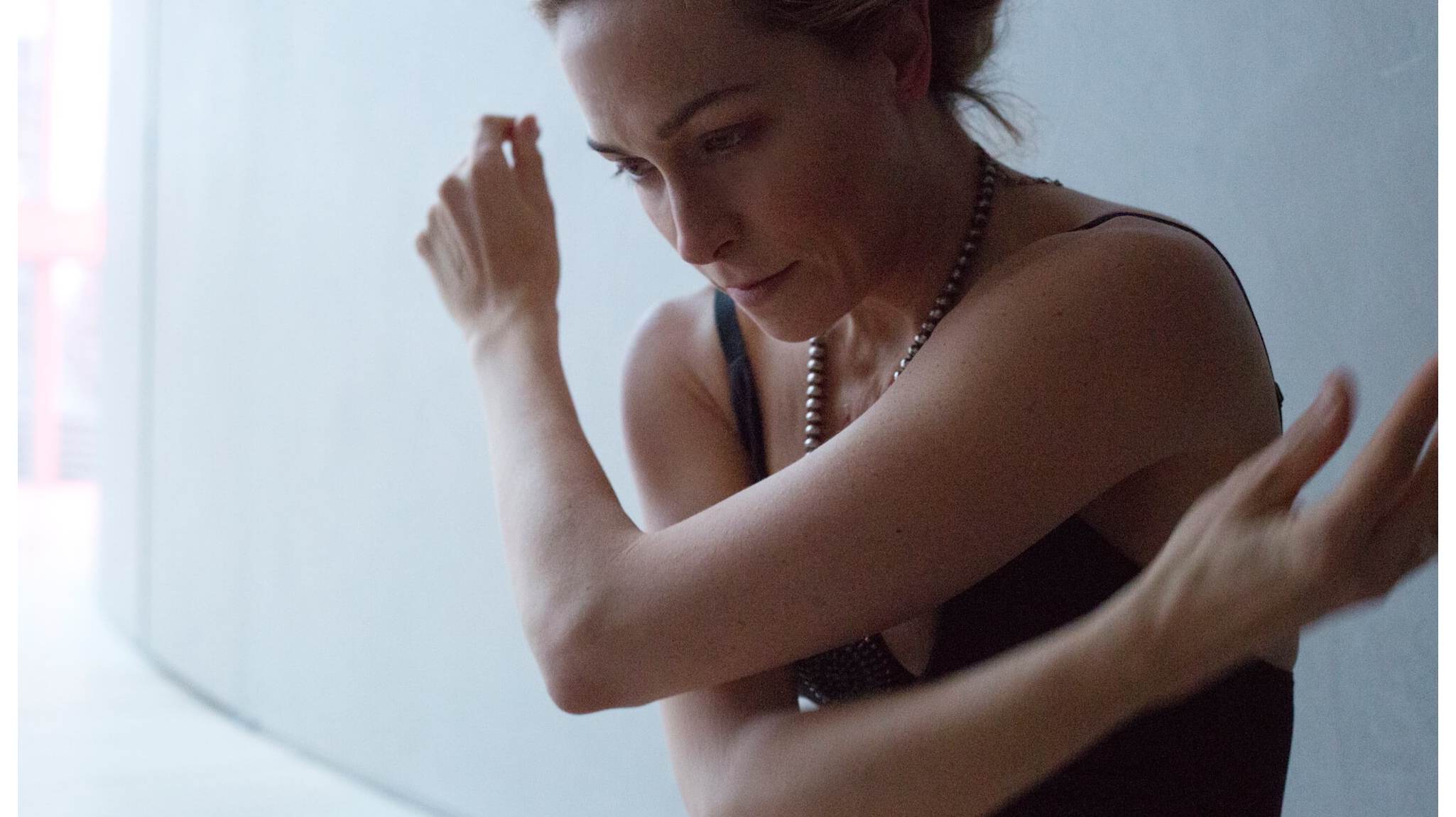
Mindful moments
The hours leading up to your bedtime are the most crucial for a restful night’s sleep. Getting into a habit of avoiding technology and blue light will allow your brain to prepare for rest. Meditation and yoga are also proven to help us relax and put our mind at ease. And if you need some extra help, try burning essential oils to create a calming atmosphere in your bedroom.
There are specific natural fragrances that when burned can help improve air quality. Eucalyptus is especially great during the summer months, as it is known to open up air pathways and cleanse high traffic spaces, which is especially helpful for those struggling with seasonal allergies and hay fever.
And lastly, if you find yourself tossing and turning, allow yourself to reset by leaving your bed completely for at least 15 minutes. In that time focus on a very simple, relaxing task like reading a few pages from your favourite book or doing a gentle stretch. This will stop you from associating your bed with restlessness and unwanted thoughts, and instead will help your mind perceive it again as a peaceful place of rest.
